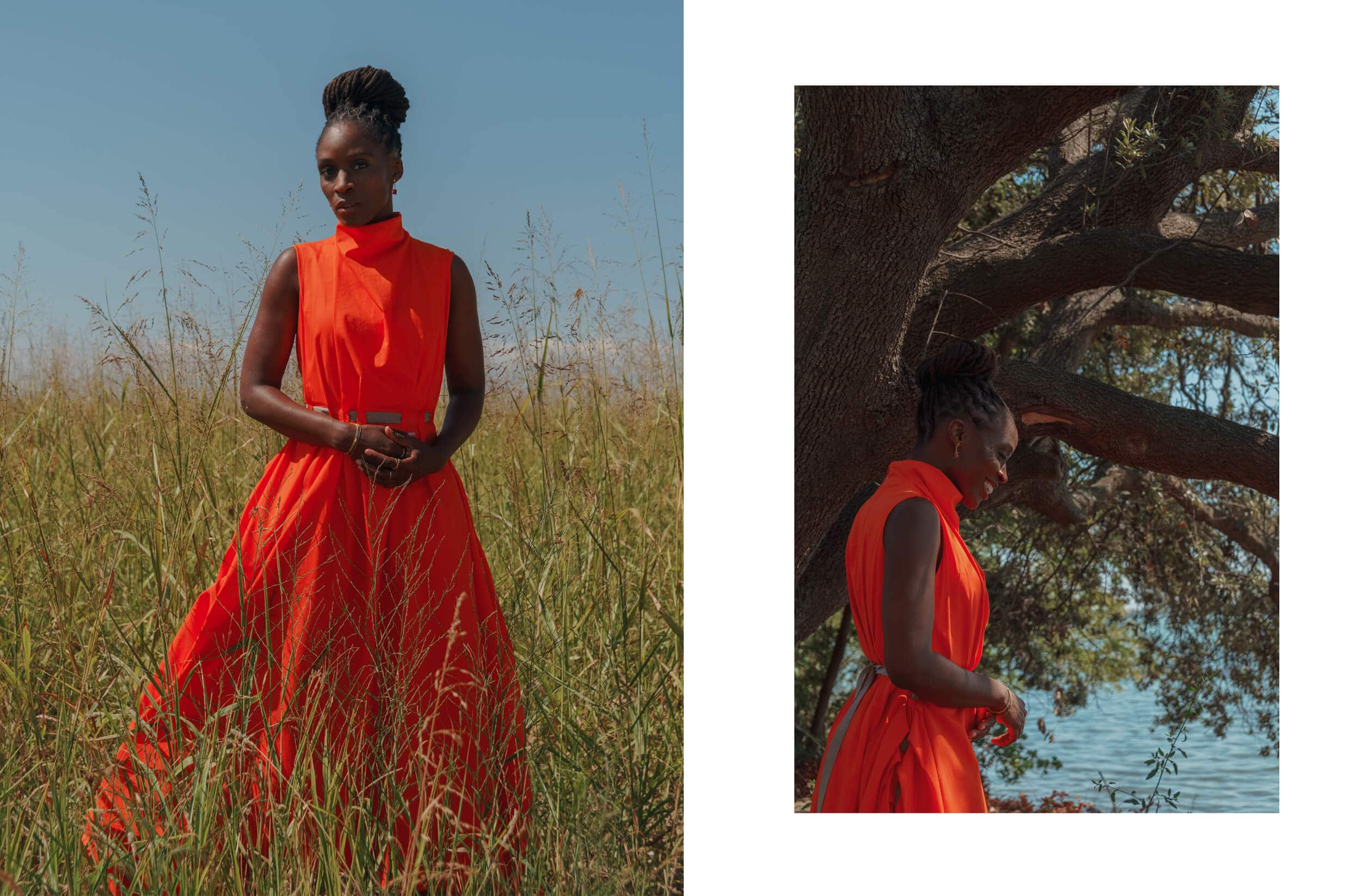Born and bred in East London, Sharon Duncan-Brewster knows her stuff when it comes to freedom of expression, female empowerment, and the importance of even the tiniest of changes. All themes we passionately discussed during our interview on a lovely, sunny day in Venice, with one, specific focus: her latest movie “Dune” and the revolutionary character she got to play, Dr. Liet Kynes.
As the fans of the books know well, Kynes was originally thought of as a man, but director Denis Villeneuve daringly decided to turn the tables for the big screen. With Sharon, we chatted about this, the challenges of adapting such character on a female figure, and the hopes and messages that this cinematic operation entails, all from the perspective of a “newbie on this big-scale block” as Sharon defined herself, but she is definitely a newbie (on any scale) no more.
What’s your earliest cinema memory?
I remember my first trip to the cinema, I was with my mum and my dad, it was a cinema in Hackney, East London, which is where I’m from, and we were trying to get in to see this film, I can’t remember what it was because I was so young but we ended up getting in to see “Superman,” but it had already started. The screen was huge to me, I’d never seen anything like it, and I’ll never forget it because I only went to the cinema twice with both my parents. My dad used to take me to the cinema more or less every weekend, so I guess that was part of the seed being planted. I didn’t really look at the screen and think that I wanted to be there but I think it was something about the magic of storytelling. As a child, we got to see a double bill, so you’d have two totally different worlds in front of you and you could just immerse yourself in and let go, and a lot of them were Disney, so things like “Bedknobs and Broomsticks” or “The Aristocats,” and all the oldies because I’m a certain age, so it wasn’t “Aladdin” and “Beauty and the Beast,” but all the stuff that came before [laughs].
I loved going to the cinema, I always have, I actually used to skip school to go to the cinema, as well [laughs], on my own, so it wasn’t even a rebellious thing, it was because I really wanted to go. It was a chance for me to go to see films that my friends wouldn’t necessarily want to see at the time because, at that age, you want to see action movies, romance, whereas I was interested in other types of films, maybe from a different country, or just of a different subject matter.
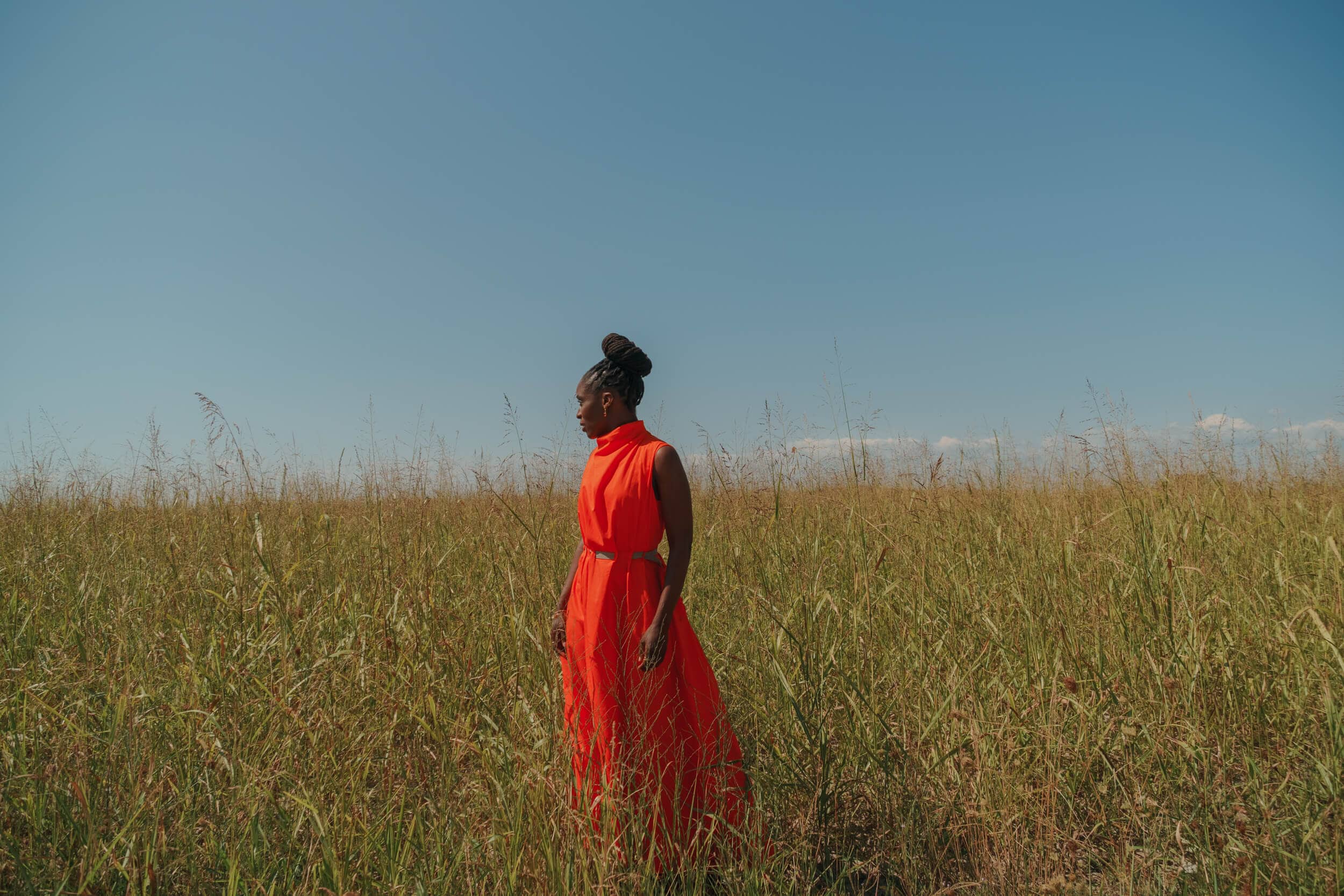
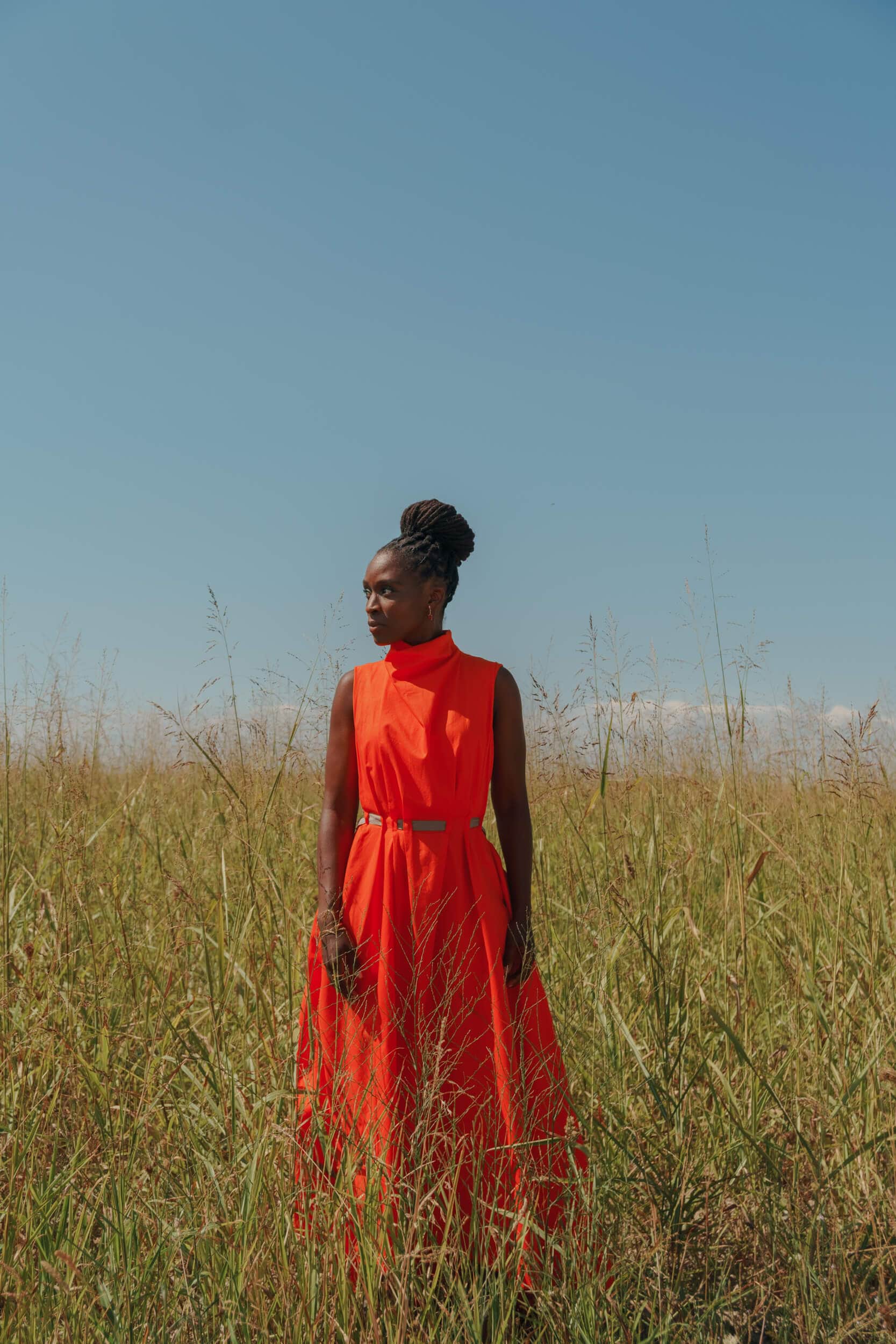
I love going to the cinema alone.
Yeah! There’s nobody talking to you! [laughs] You know, when you go with your friends, it’s a totally different experience. I’m cool with that, but you have to know which film you’re going to see if you’re going with your friends because you’ll have that one friend who will talk during the whole film. I’ll never forget going to see “A Beautiful Mind,” I was acting in a show at the time, and a friend of mine whispered, “I worked it out, I know what it is,” and I said, “DON’T TELL ME!” but she spoiled the whole ending of the film for me, so, from then, no more film buddies.
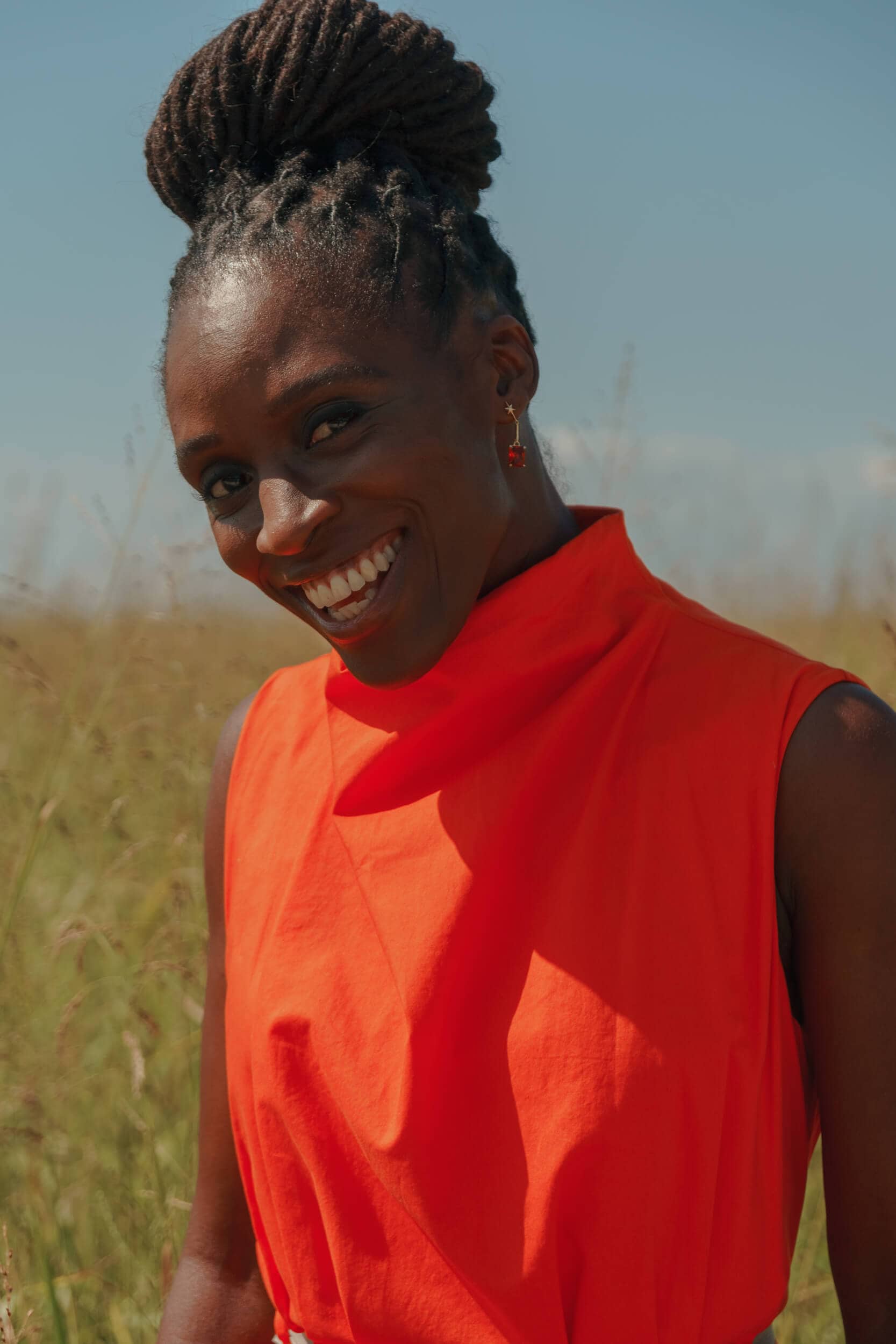
“…no more film buddies.”
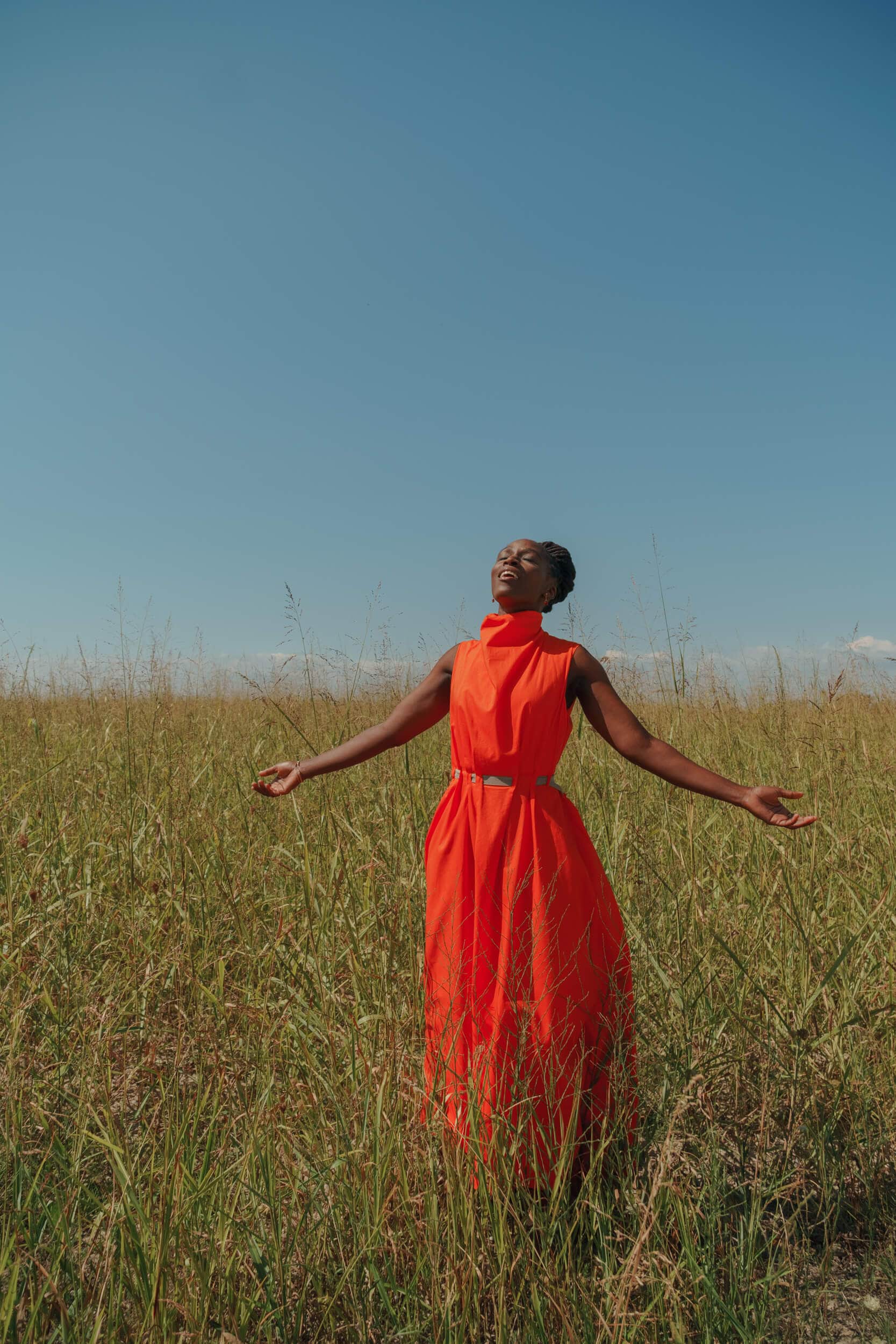
What was your first reaction when you read the script of “Dune”? What was the first question you asked the director or the screenwriter about it?
The first question that I asked Denis [Villeneuve] when I met him for the first time, face to face, was, “Monsieur, why me?” [laughs] And he gave me a very clear and honest answer, which was, “Madame, I’ve seen your self-tape;” he said that he liked what I’d brought to it, he felt that I was the embodiment of Kynes and after seeing some other showreels and things, he thought, “Yes, this is the one for the job,” so it was very simple for him once he’d seen that I was the person for it.
Initially, I was there thinking, “Gosh, this is a big deal, this is a multi-million-dollar project with very, very big names, very well-known names, and very recognizable faces, internationally,” and for me, I’ve done a lot of work, and I should make that clear because I keep referring to myself as a newbie on the block, but when I say that, I mean a newbie on this block. I’ve been acting for a very long time, I’ve done a lot of theater, and British TV and some other international projects, but just on a smaller scale. For me, seeing the script for the first time, I was curious to know how they were going to manage to fit all that information in because, as anyone who’s seen the book knows, it’s huge, it’s dense, but for all the right reasons, the world that Frank Herbert has created is complex, there are reasons behind every twist and turn that he decided to infuse within the story and, for me, he was a genius because you don’t really get people making stories like that anymore, or trying to, I think it’s a mammoth task for anybody to even make that story, but then to take that story and put it on the big screen, it’s a huge challenge.
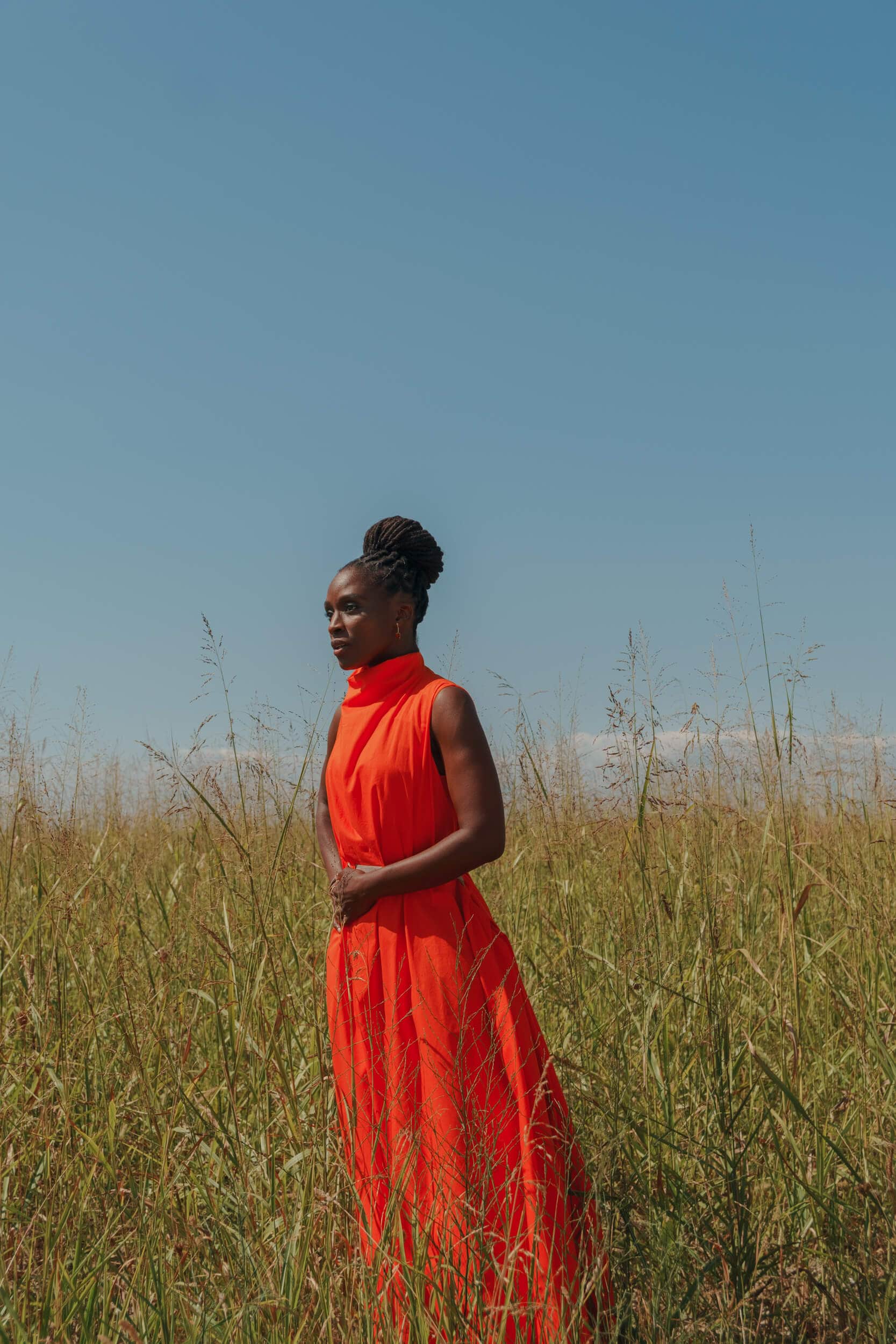
“Monsieur, why me?”
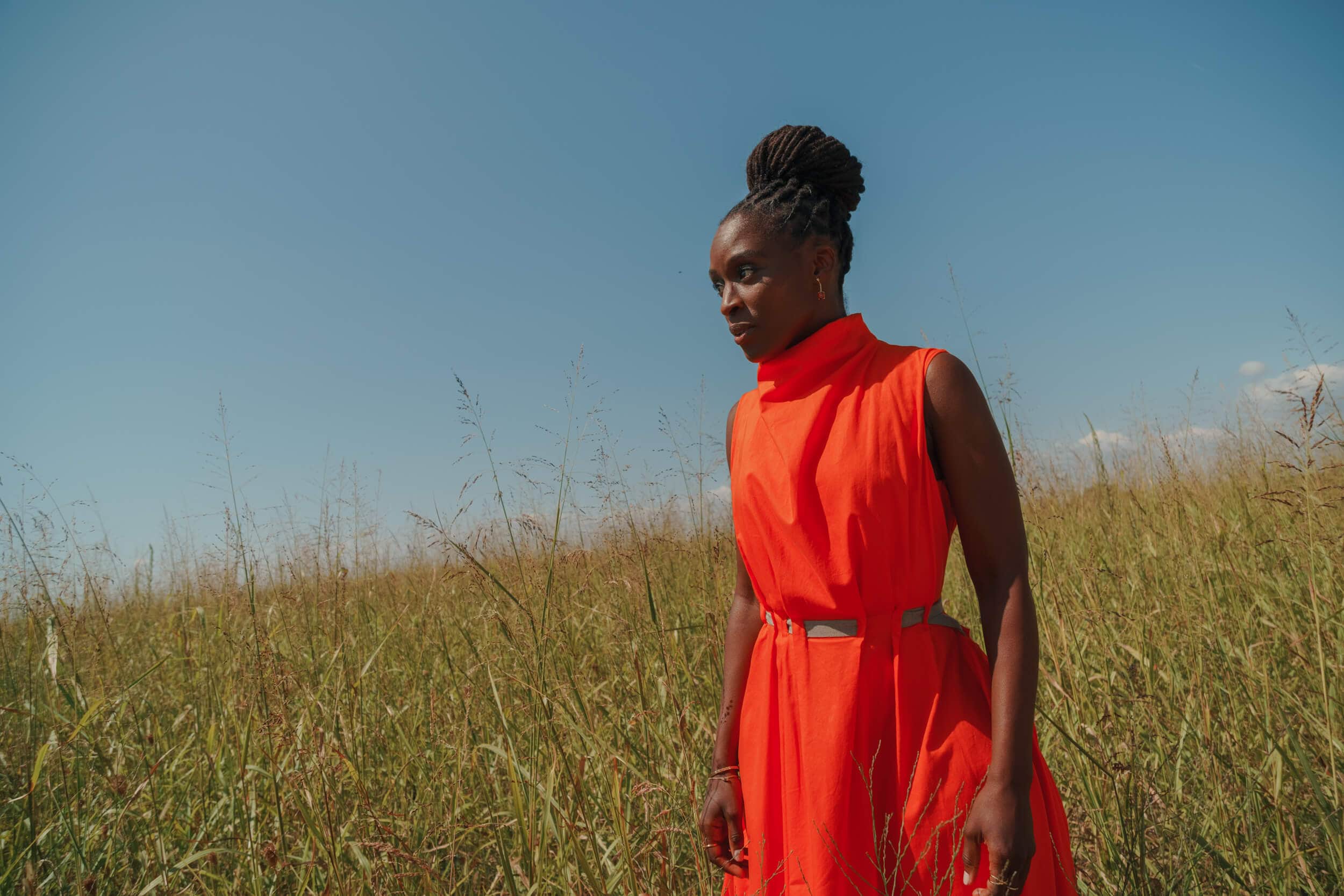
“Madame, I’ve seen your self-tape”
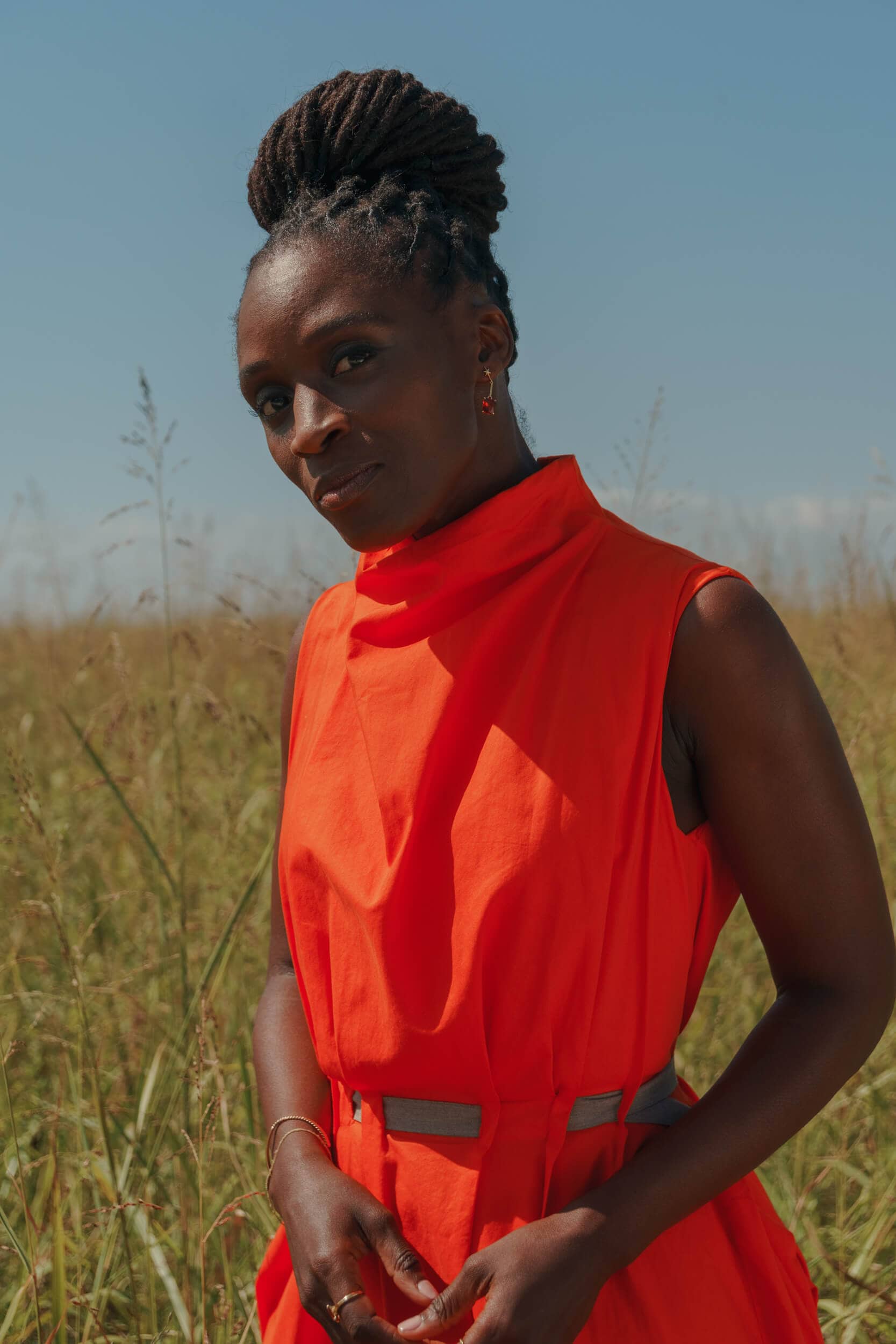
Your character is actually a man in the novel, but in the movie, it’s one of the female badass protagonists. How did you work with the director and screenwriter to model the character on a female figure?
It’s such an interesting question because, as an actor, or actress, whichever way you want to call it – it depends on who I’m talking to and what the context is, I call myself an ACT-TOR (pronounced differently to the traditional English pronunciation that suggests a male performer), but I still call myself an actress because that’s empowering – I asked the same question, “What do I bring to this role, being a woman in a role that was originally written for a man?” The honest answer is that there are no changes as such, you just act what is within the script and within the story, the only difference is that this body that stands before you, or that you see on the screen, happens to have slightly different anatomy.
Socially, psychologically, politically, yes there may be some differences, but that’s also what I find interesting for the viewer who knows that within the book Dr. Kynes was a man: now, watching a woman, it’s a chance for them to sit and look, it arouses so many questions, it evokes the knowledge of how much things have changed over these years since the book was written. It’s a time for the people to realize that there isn’t a difference in Dr. Kynes’ energy really but, as the story grows and truths start to unravel, you do see how complex this world is, how there are different social aspects, so many differences between elders, wise ones, spiritual ones, workers, that there’s even more fun to be had by adding gender into the Kynes mix, as far as I’m concerned.
I look at it and think, “Gosh, if I wasn’t a woman playing a guy, would people even begin to explore how much things have changed in terms of patriarchy and the roles of women in a patriarchal society while watching this film?” The story itself is set in the future, but from the time that Frank wrote it, in the ‘60s, to where we are now, how much has actually changed? For me, if it was another man playing Kynes – and this is me talking as a woman, in hindsight, looking at what we created – fewer people would have thought about those aspects within the story. I think that now, we’re a society that is far freer with discussing gender and sexuality, even though the ’60s had so many powerful breakthroughs, now, is the perfect time for Kynes to be a woman because we can start to unpick all the other aspects of the story while asking, “This is so dense, why don’t we talk about this? Let’s have these conversations amongst ourselves in this society!”
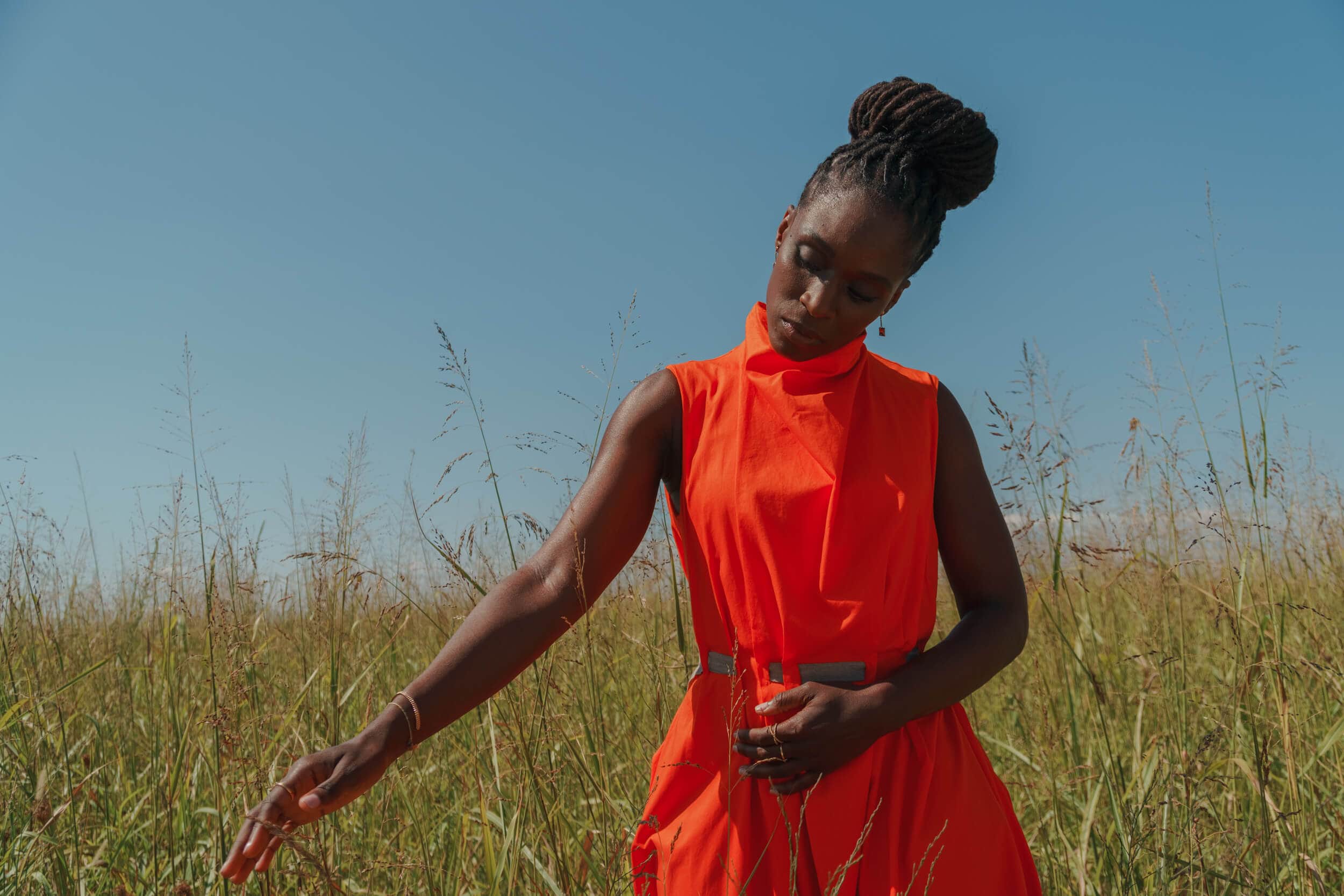
Things have changed, but things can change even more. If you take those 60 years between when the book was written, to now, then look forward to the world we’re propelled into with this story, there’s a huge amount of time for things to really happen, and then you wouldn’t even worry about the question of Kynes being there as a woman because we already are in a world where many of us are asking- “What was the fuss about?”.
I think if we consider where Frank was in his storytelling and how his storylines with women developed, we know that, if he was writing this now, he wouldn’t have a problem with Kynes being a woman at all because his female characters were always strong, to begin with, and then he just added more and more. It’s a great opportunity for society to have a conversation about the things that need to change. This is what I think is great about me being there. Whether some of the fans will agree with that? I think it’s nice to watch the discussions that they have and hear how they feel about it because even they are split along the line of whether or not Kynes should be a female and how it affects the character, and for me, it’s great to know they are having that kind of conversation.
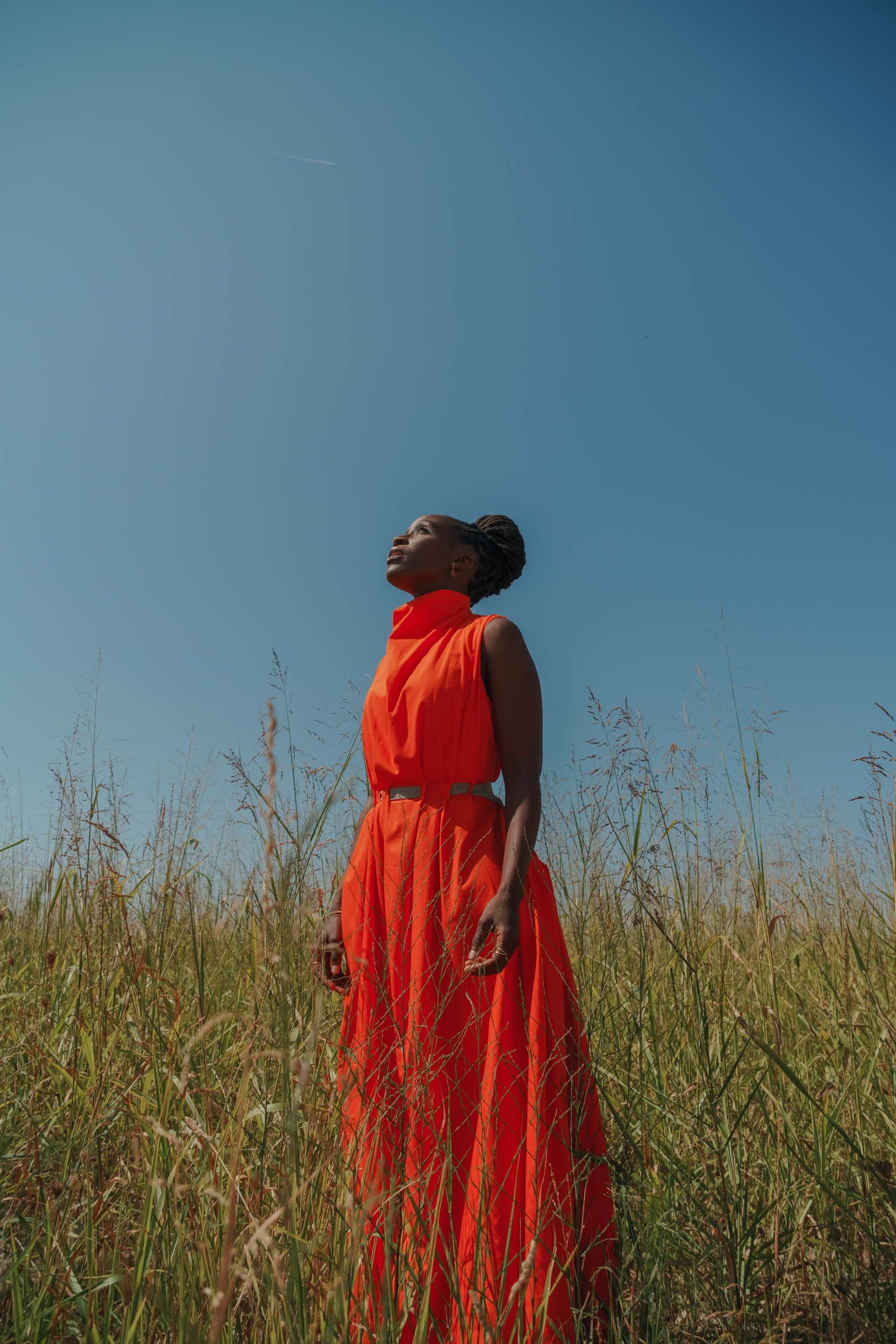
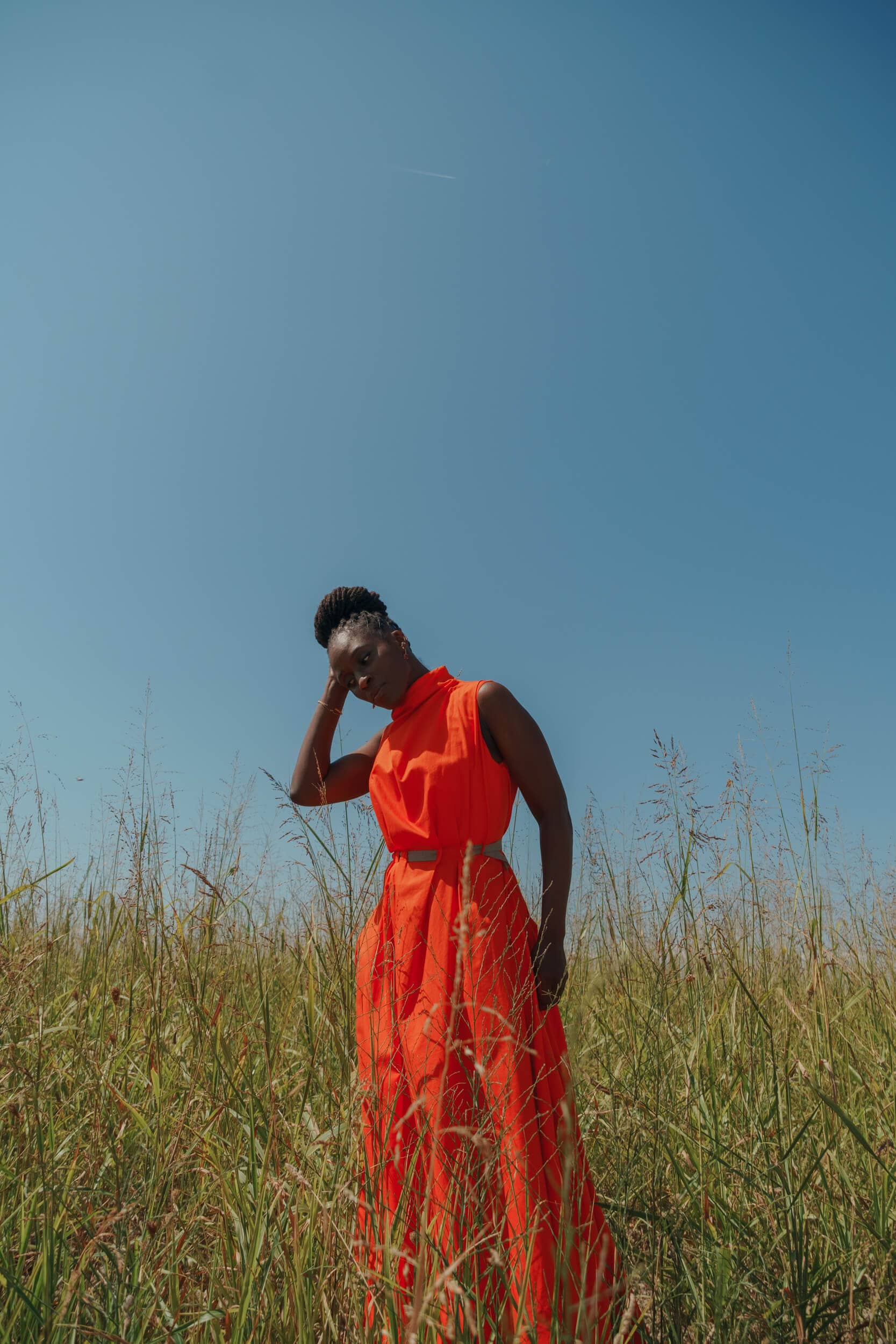
“What do I bring to this role, being a woman in a role that was originally written for a man?”
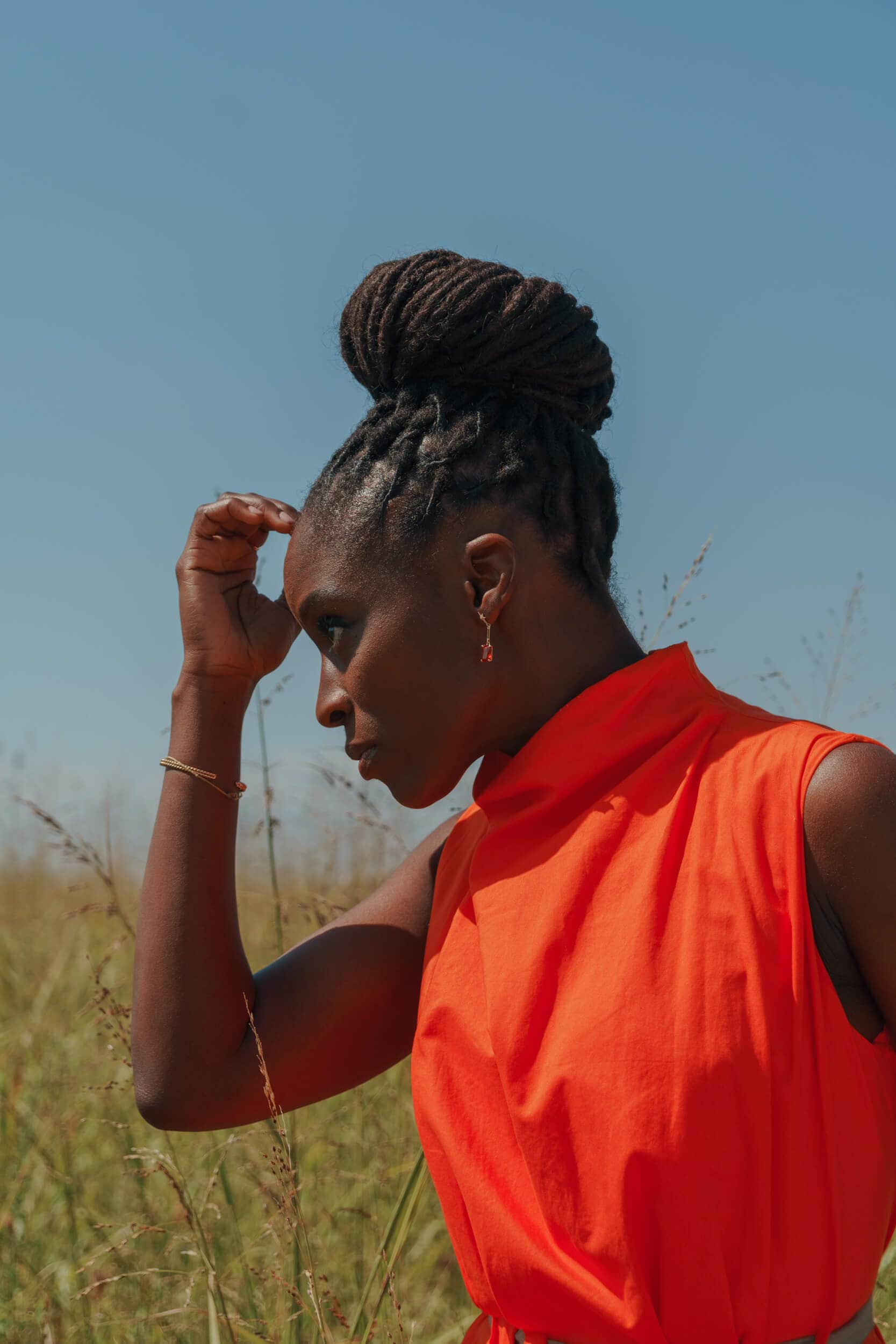
“This is so dense, why don’t we talk about this? Let’s have these conversations amongst ourselves in this society!“

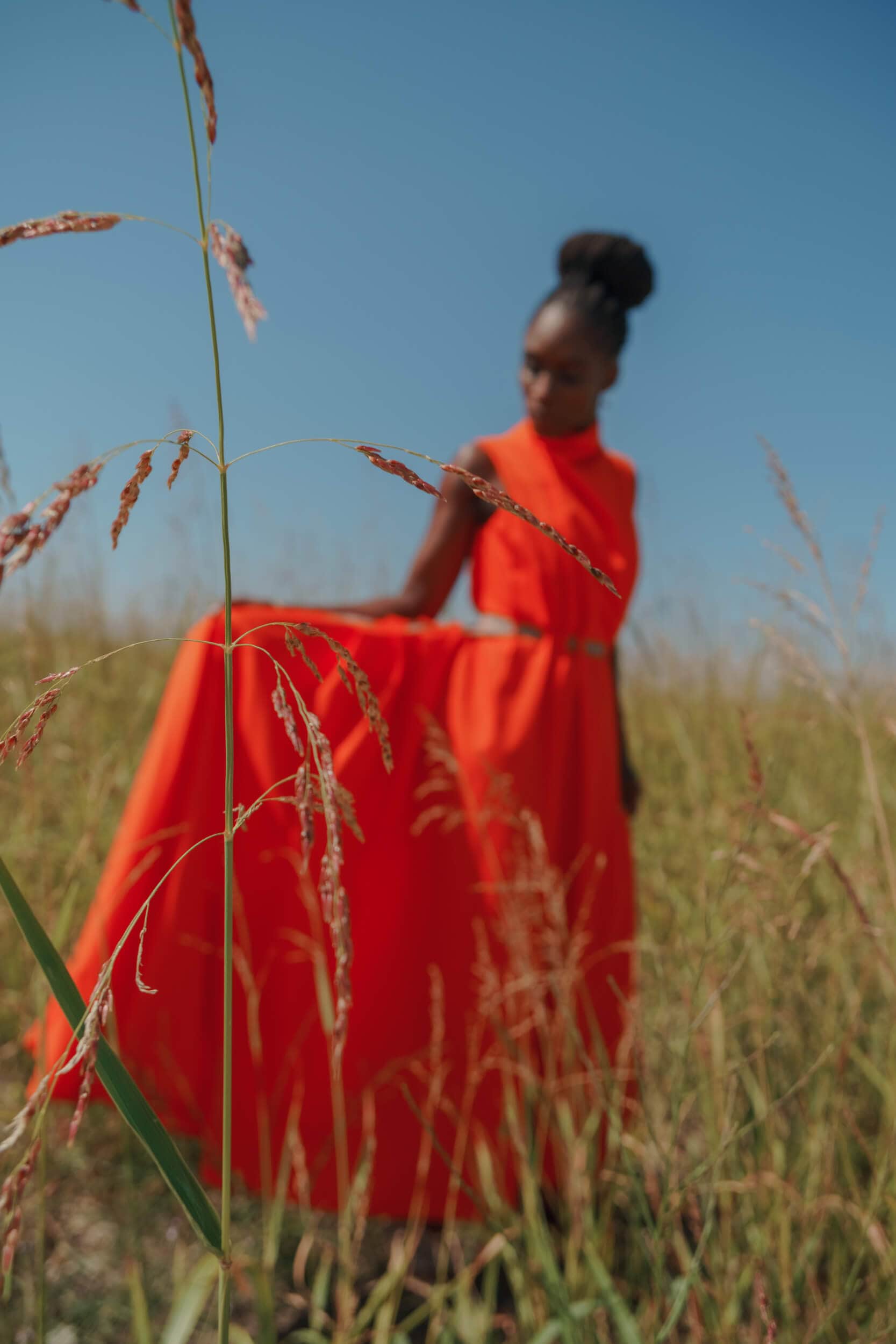
The book “Dune” has impacted the culture across film, art, cinema, music, and the whole sci-fi universe. How did you work with the rest of the cast to build your relationship on the screen and adapt such an important piece of literature?
To be honest with you, I think that everybody brought their A-game, everybody was “On point!” as we say. It wasn’t difficult to change, and tune in to the world that we were placed within, the set, the design, and the backdrops of every location were so breathtaking, as well as the costume design, Jacqueline [West] and Bob [Morgan] were amazing. Everybody did their work with regards to what needed to be seen, down to every last detail, so when we were on set, this huge, expansive set that went on forever, a wide-open space – we had one set that was almost like a football pitch, it was gigantic – there was a moment in one scene that I shot, which is not in the film, where I had to do this walk towards a very large table with all of the main cast of the show lined up, watching me, and it was overwhelming because there they were, all of these recognizable faces on one side and just me on the other side of this huge room, with columns going for miles up, to every last detail, the textures on the walls, the jewelry, the costumes, the dresses, the fittings that we had to go to, the stillsuits: they are extraordinary to wear, it took some getting used to because they had to custom-fit them for us but, of course, they have to be tight, almost like serving their true purpose. So, in those moments where you really felt like you were in the world, it wasn’t difficult to just get on with it because, in all honesty, this film is about relationships, at the end of the day, we could be doing it in shorts and t-shirts, it would still tell the same story. The wonderful beauty of it is that it has all of the additional frills to make it sci-fi, to make it futuristic.
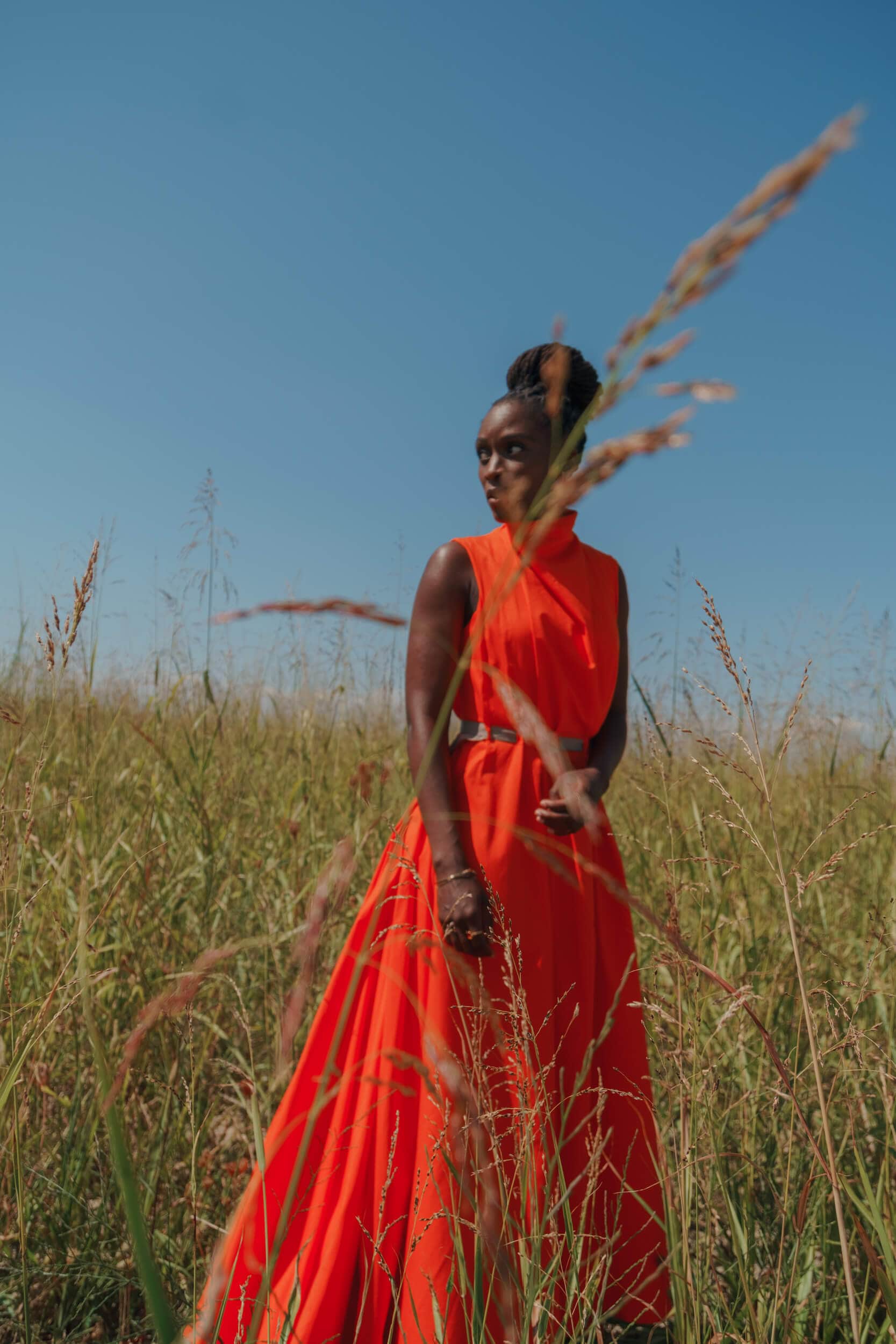
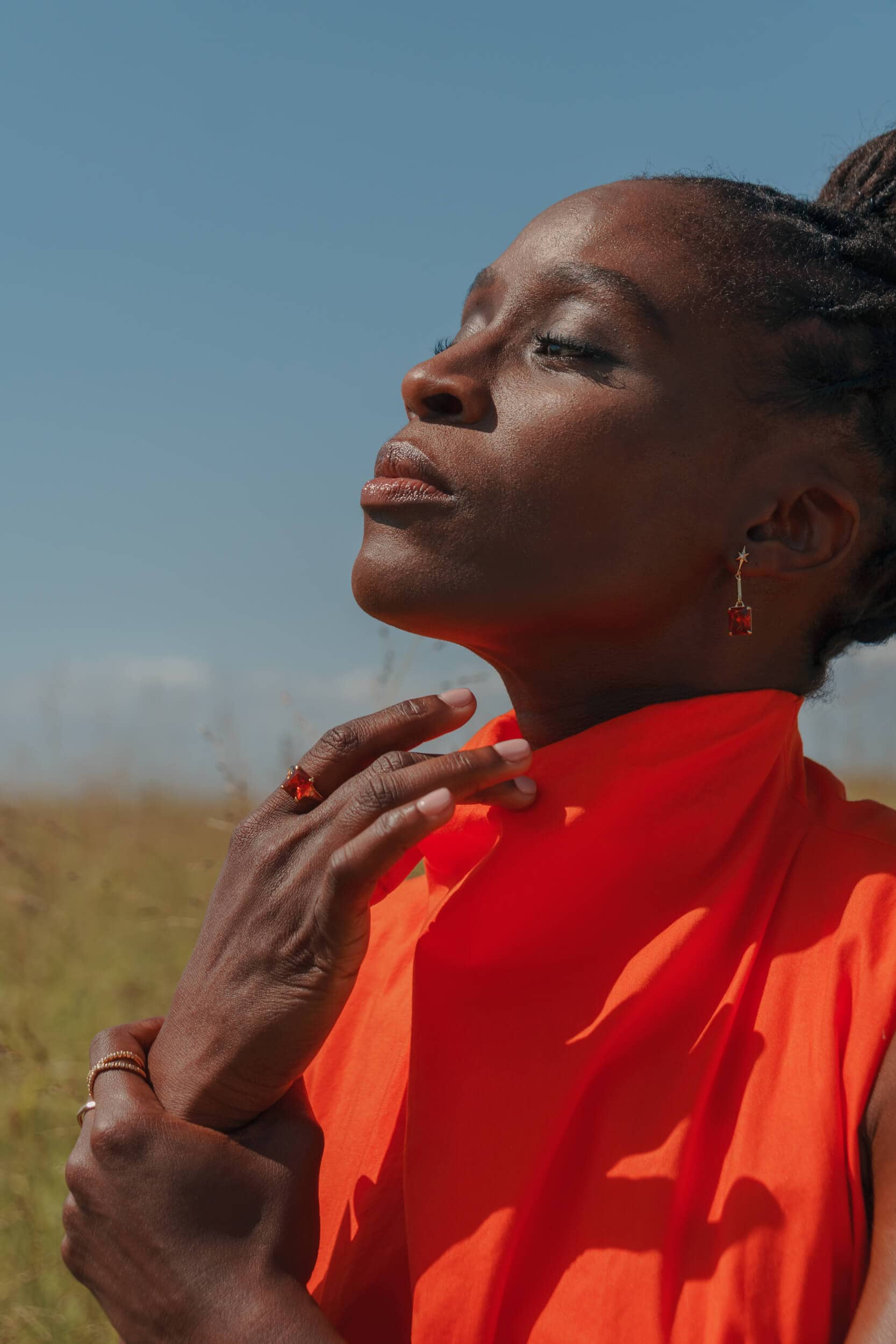
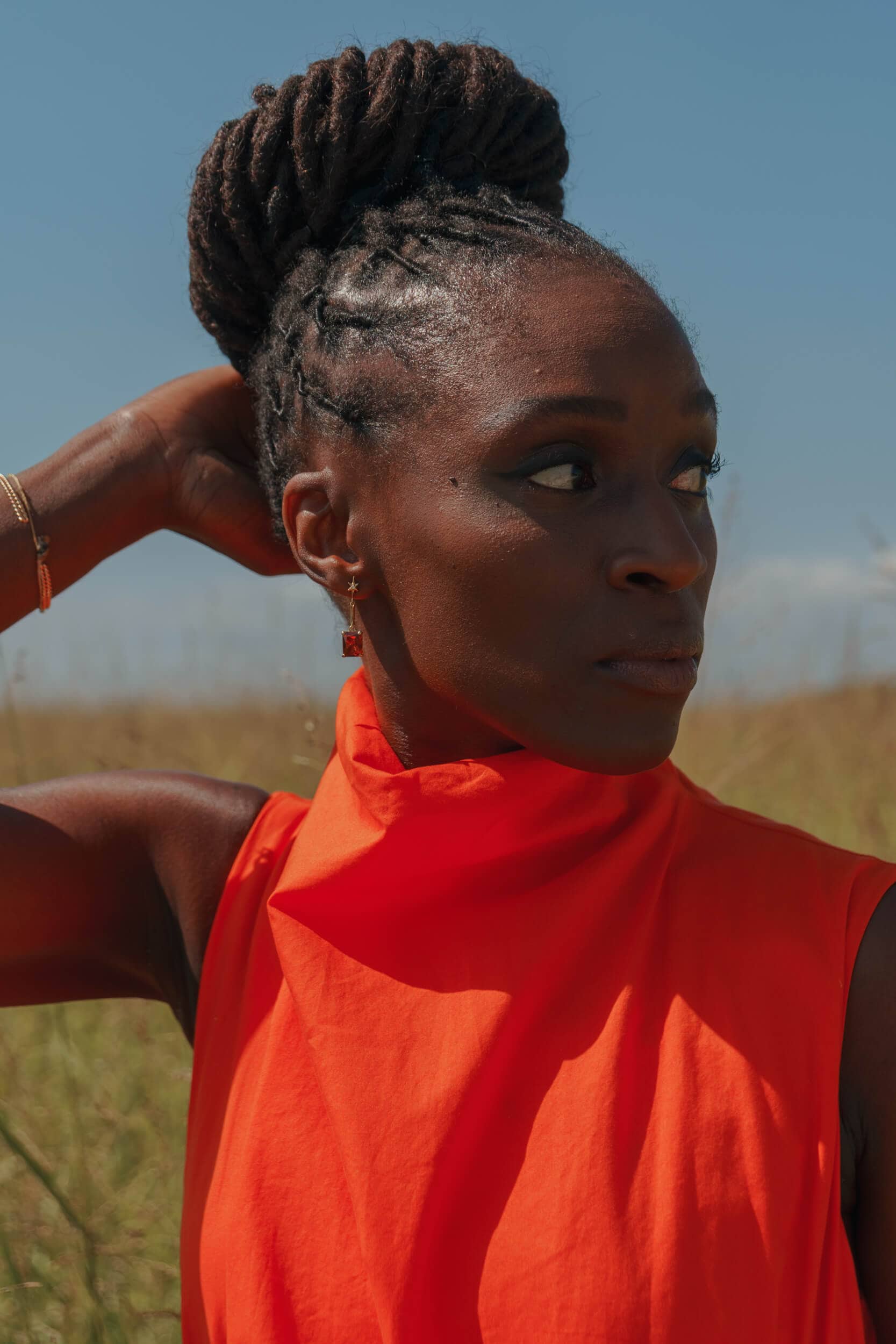
“The wonderful beauty of this is that it has all of the additional frills to make it sci-fi, to make it futuristic.”
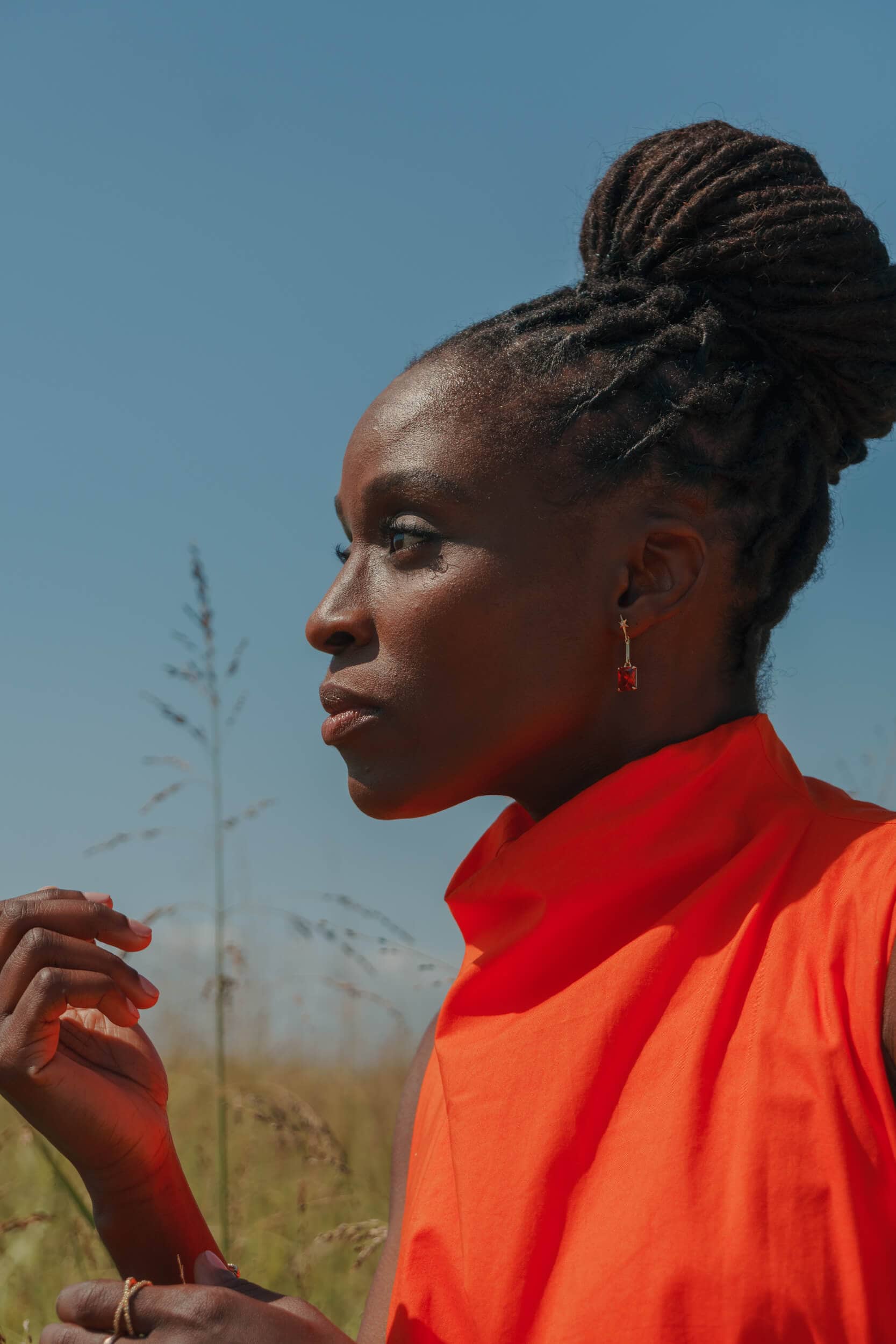
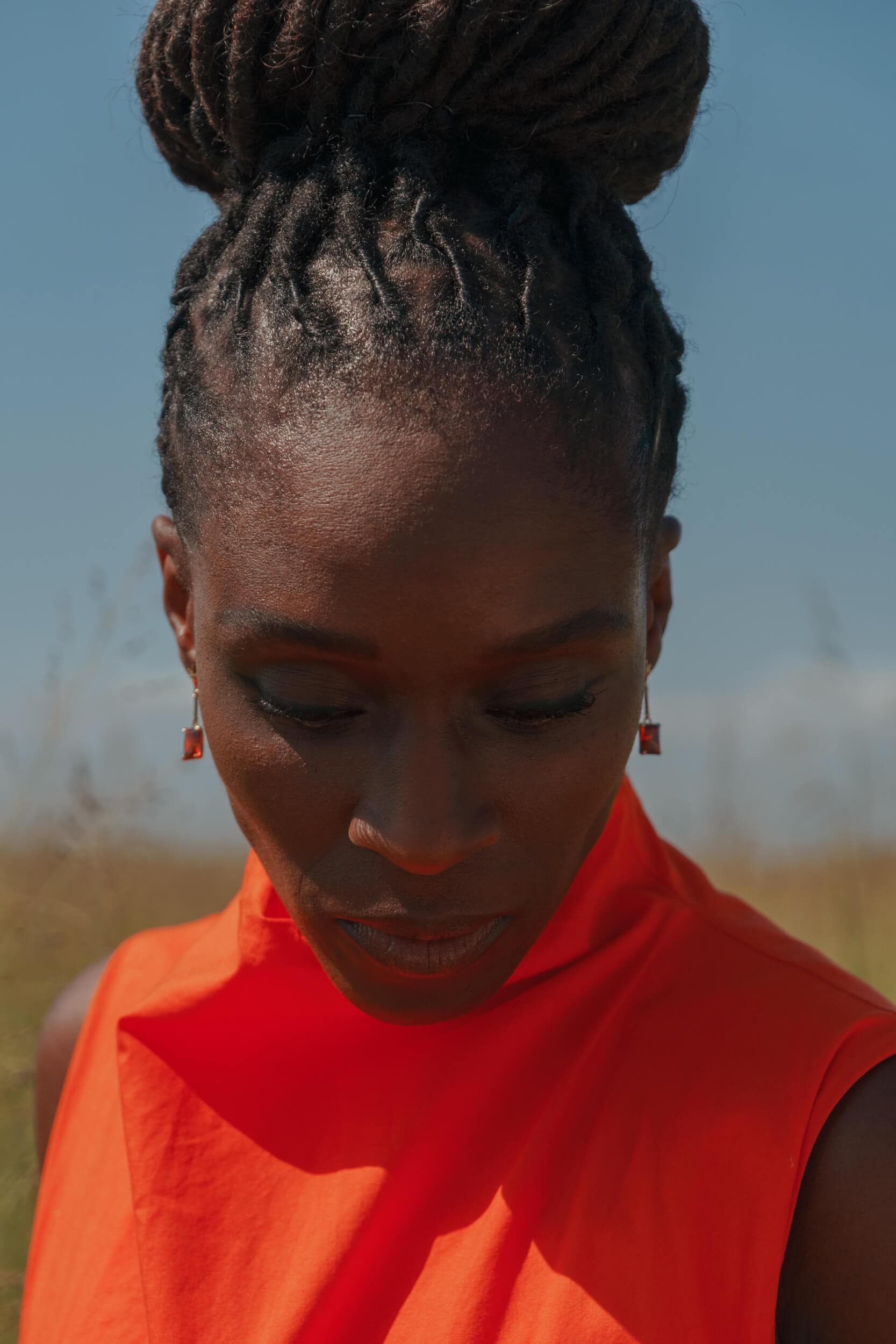
“breathtaking”
“extraordinary”
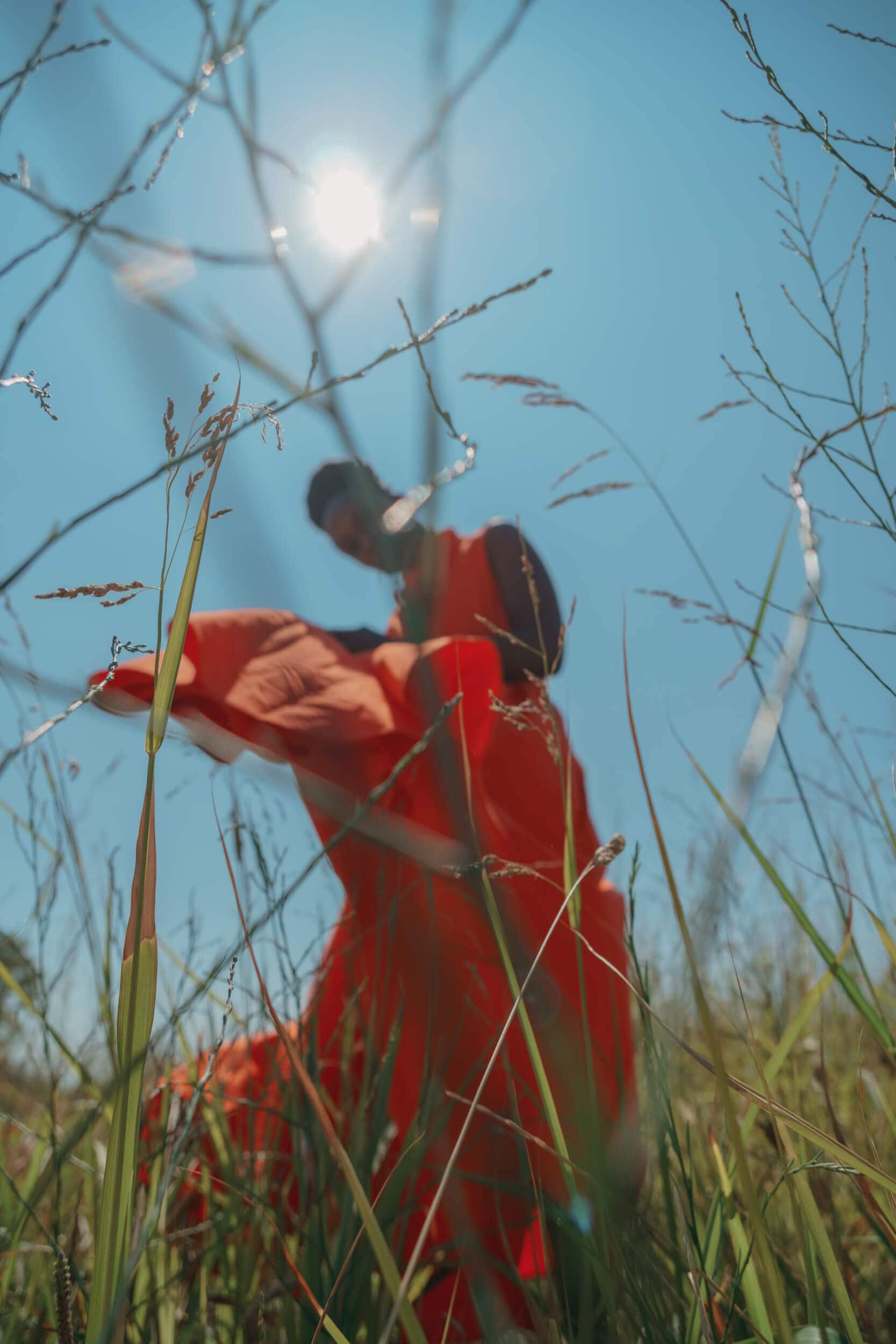
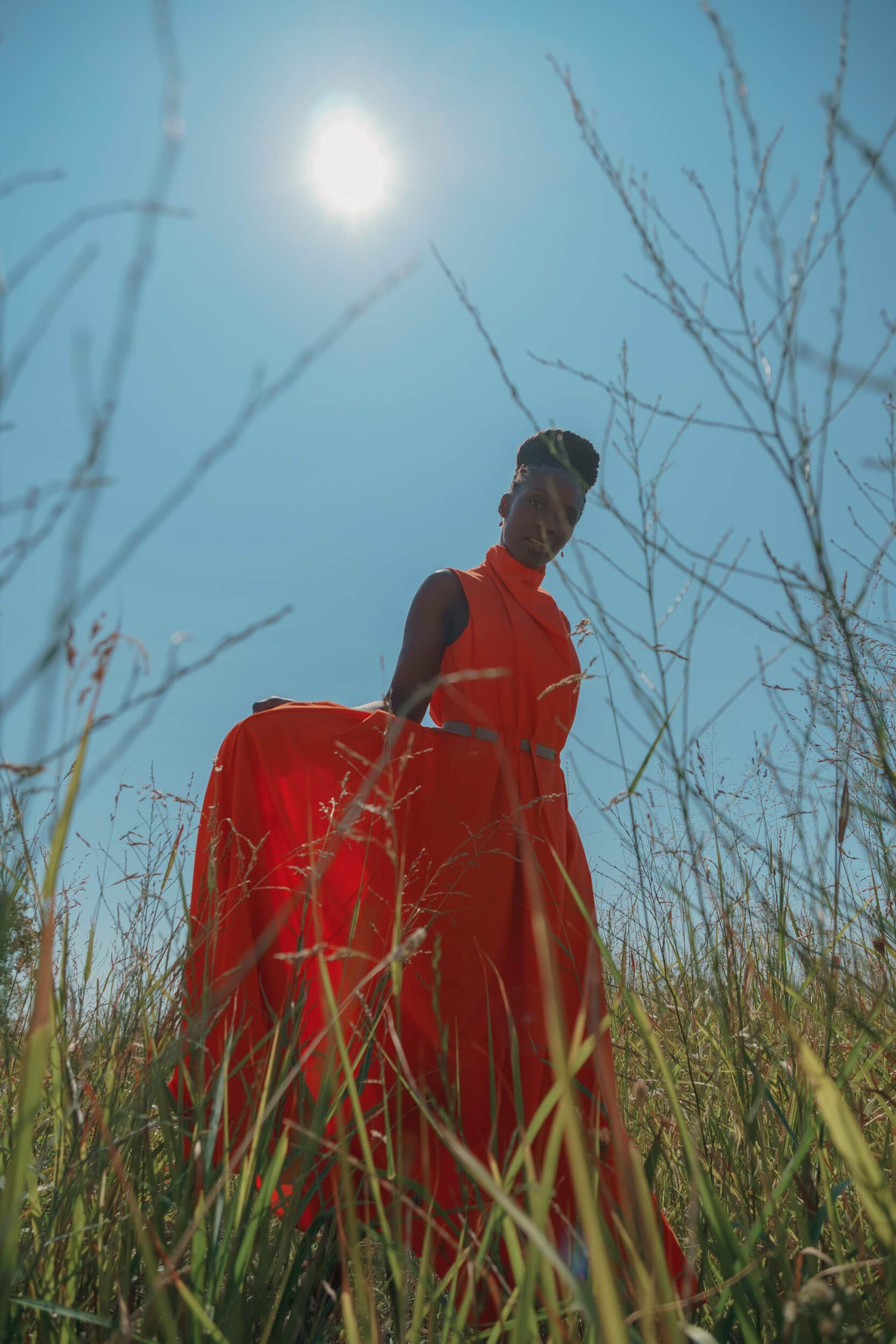
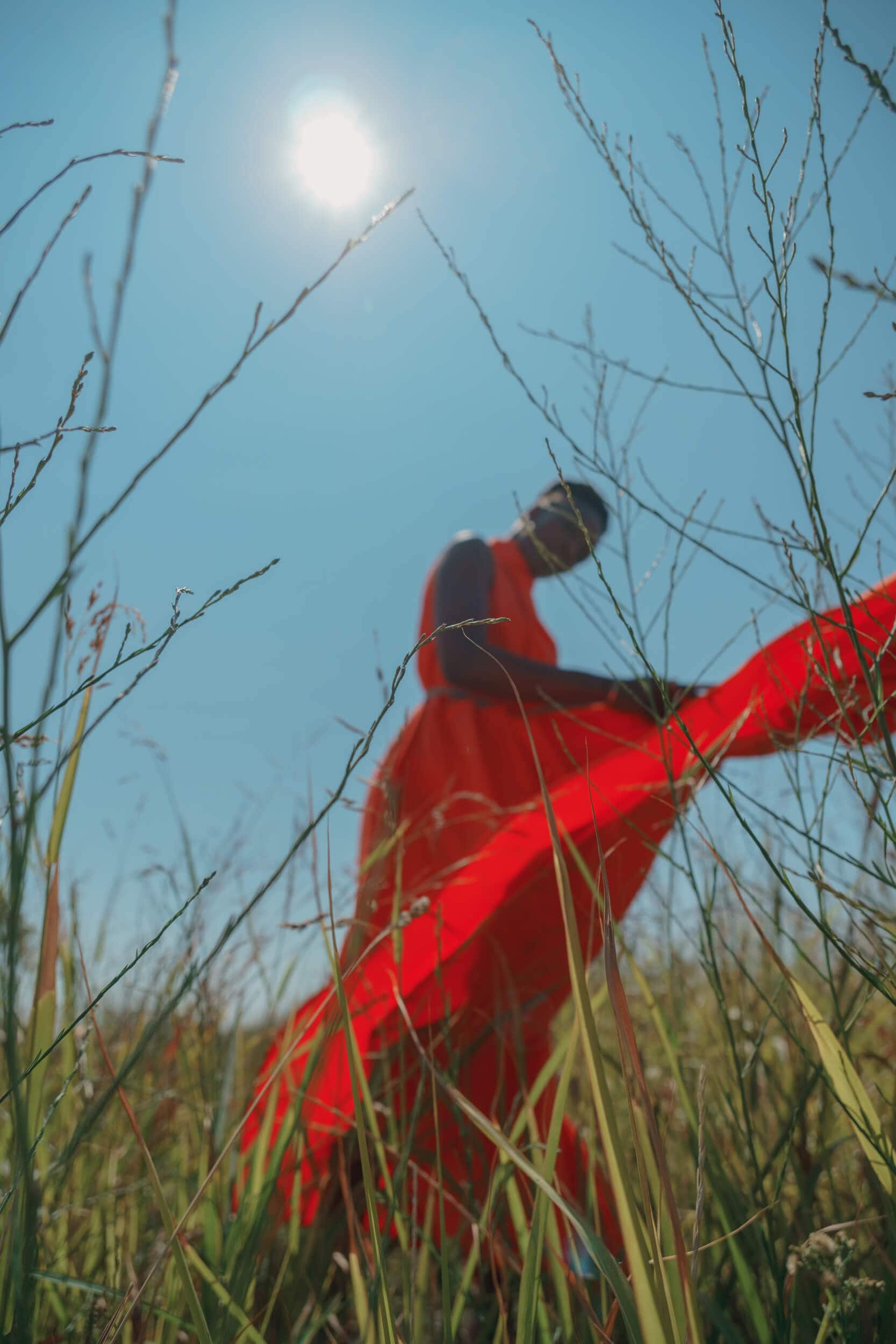
What’s freedom for you, working-wise? When do you feel free of expressing yourself?
I feel a lot freer when I’m on the stage because we have a longer period of rehearsals, so you have a longer period of time to absorb information, so, you retain that information, you know that you’ve got it all in the right order, you’ve worked out how you move from left to right. There’s something really freeing about letting go of the directors, they’re no longer there and you’re on your own, it’s almost like a caged bird to be allowed to fly free and do its thing, but having all the information and the detail that they need to shine. The beauty of theater is that every night it’s different; there’s a vibration that’s created in a theatrical space between the audience and the actor, and it truly becomes electric, so there’s no one night that’s ever the same, somebody might laugh at a moment that nobody ever laughs at again; so, you have to shape-shift a little bit in order to adapt to those reactions, and that’s what I love because you’re constantly creating. It’s like having a song, but somehow there are different elements of it that you’ve never noticed before, but you can play a bit more with; that’s what I find really freeing when I’m creating and performing.
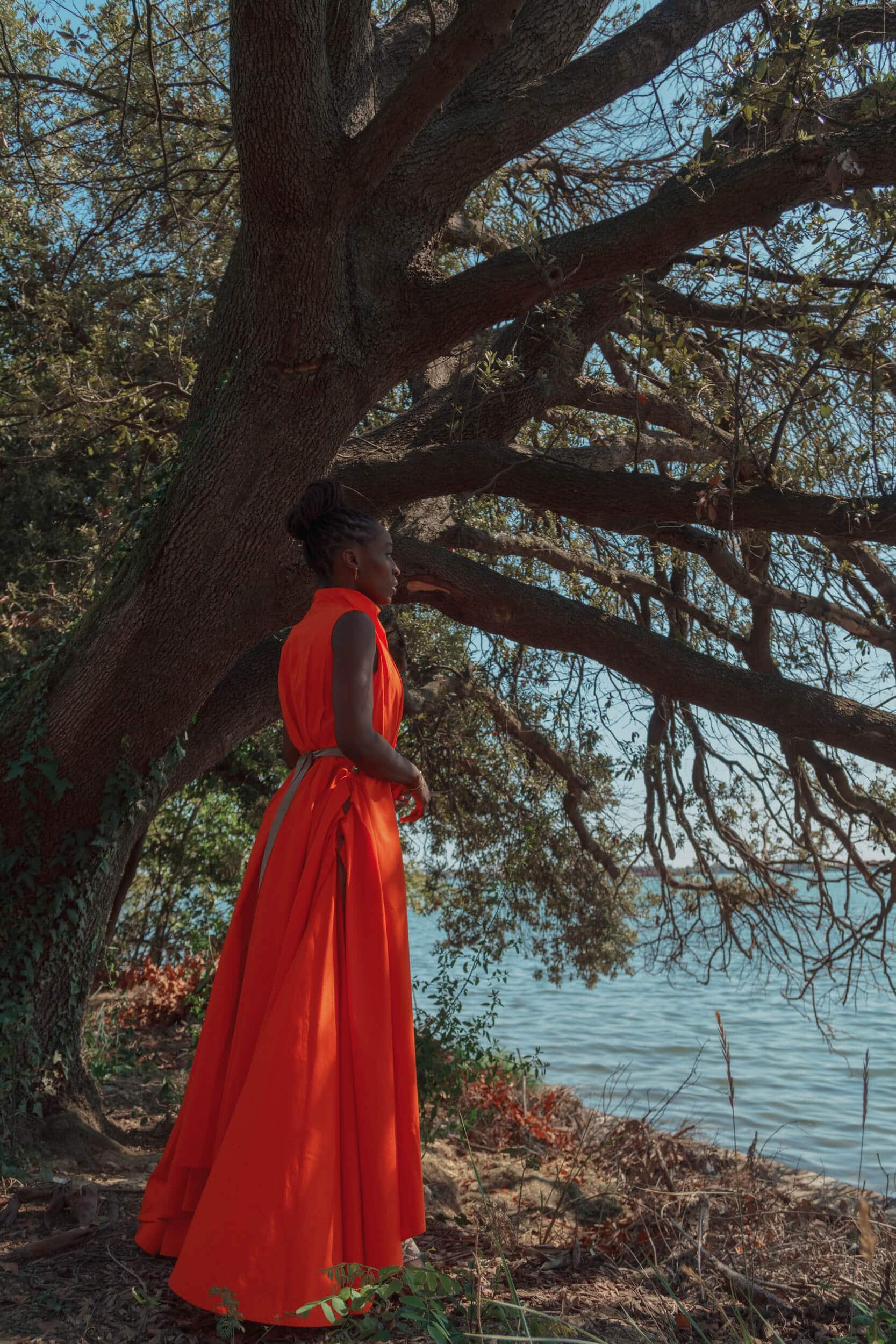
“There’s something really freeing about letting go of the directors, they’re no longer there and you’re on your own…”
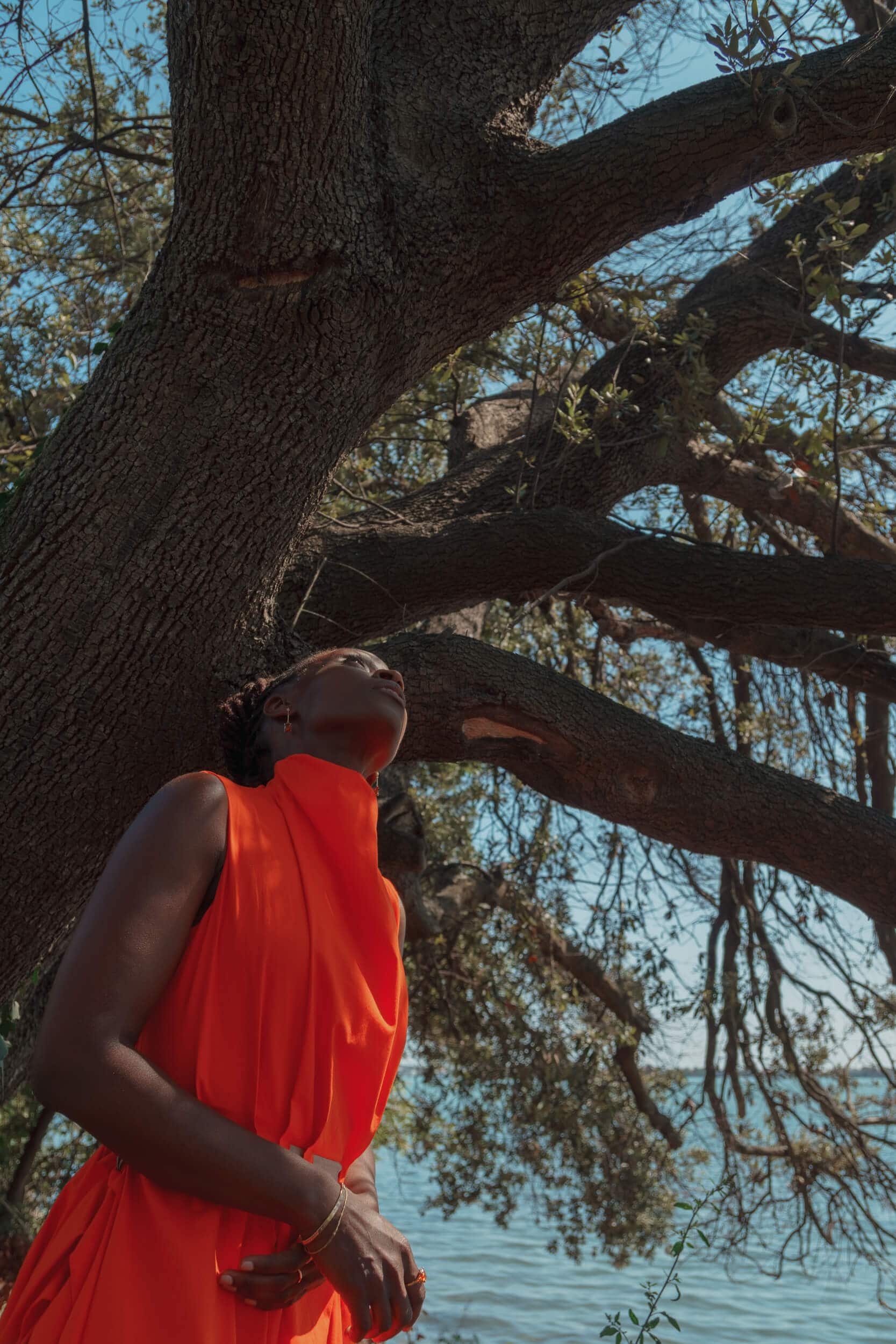
“…somebody might laugh at a moment that nobody ever laughs at again; so, you have to shape-shift a little bit in order to adapt to those reactions…
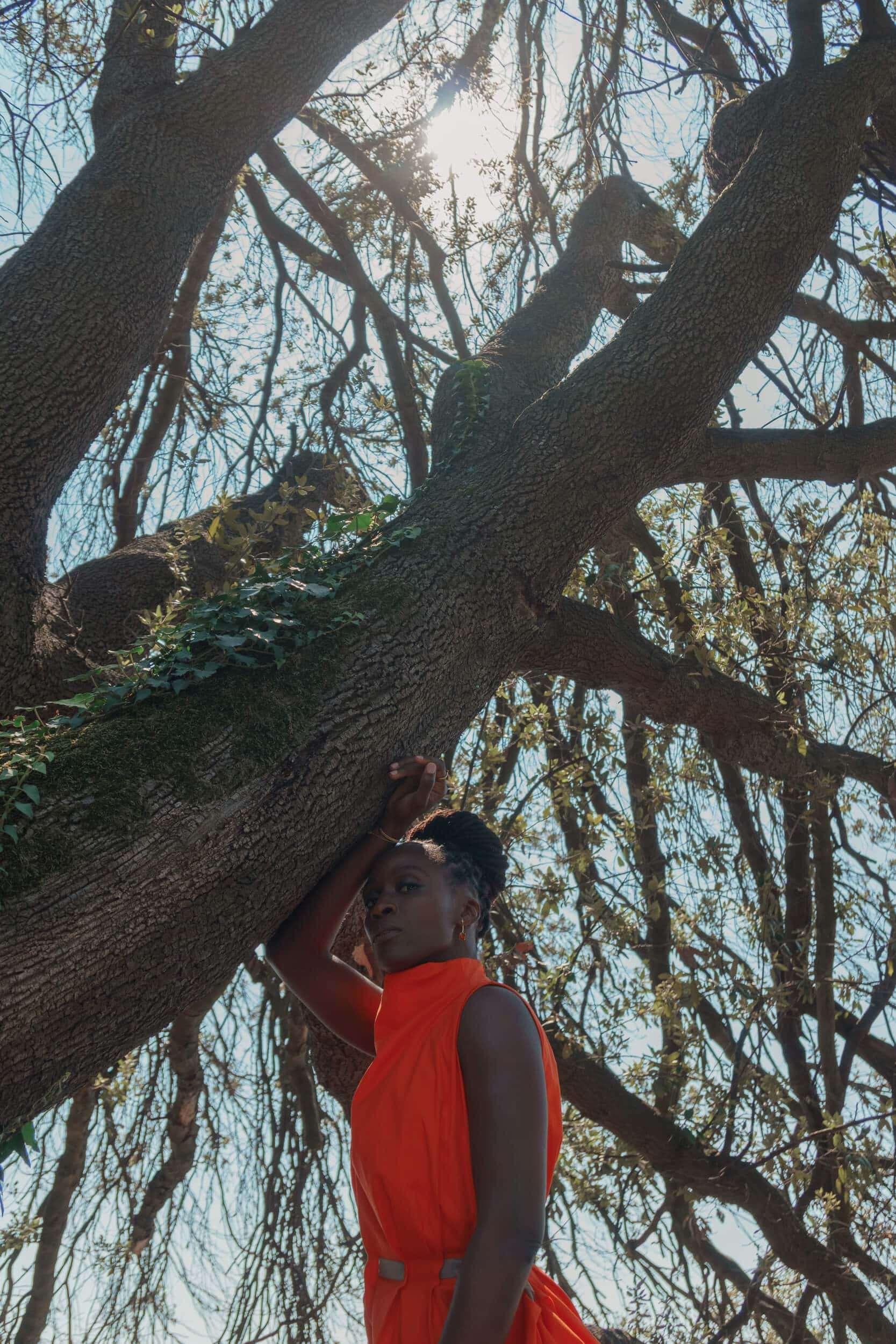
What’s the last thing you’ve discovered about yourself?
That’s it’s okay to say no. As a woman, that’s quite a big thing.
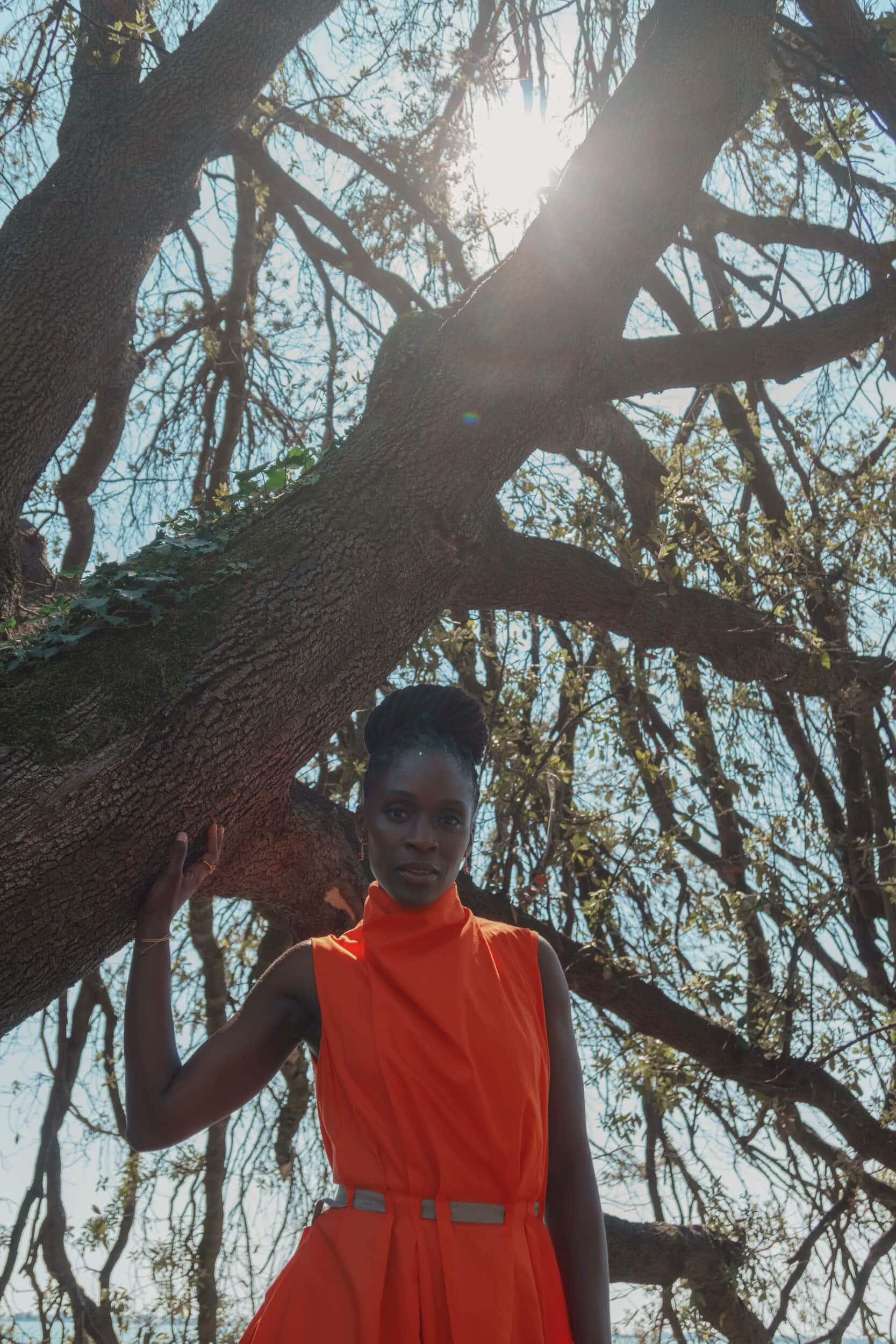
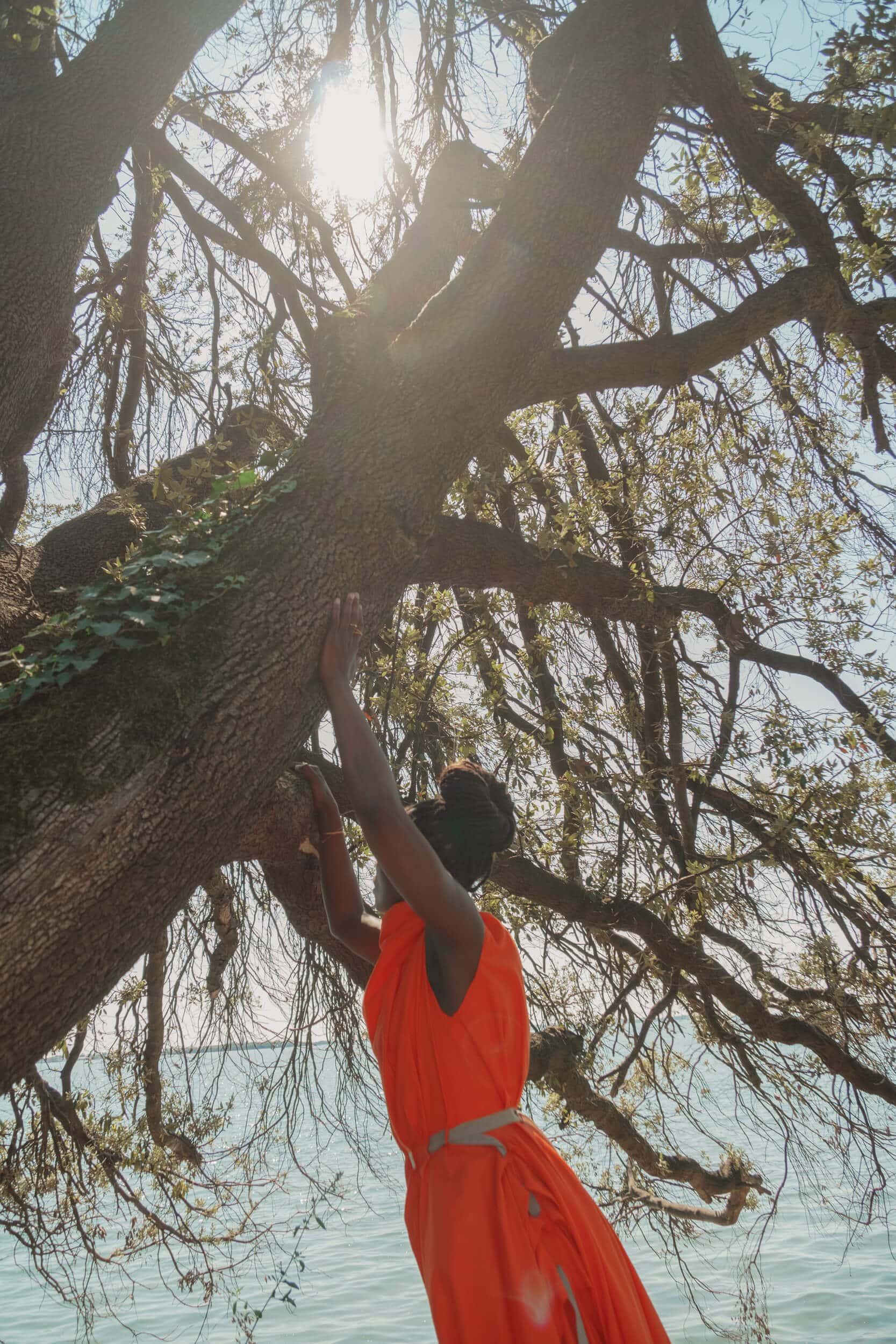
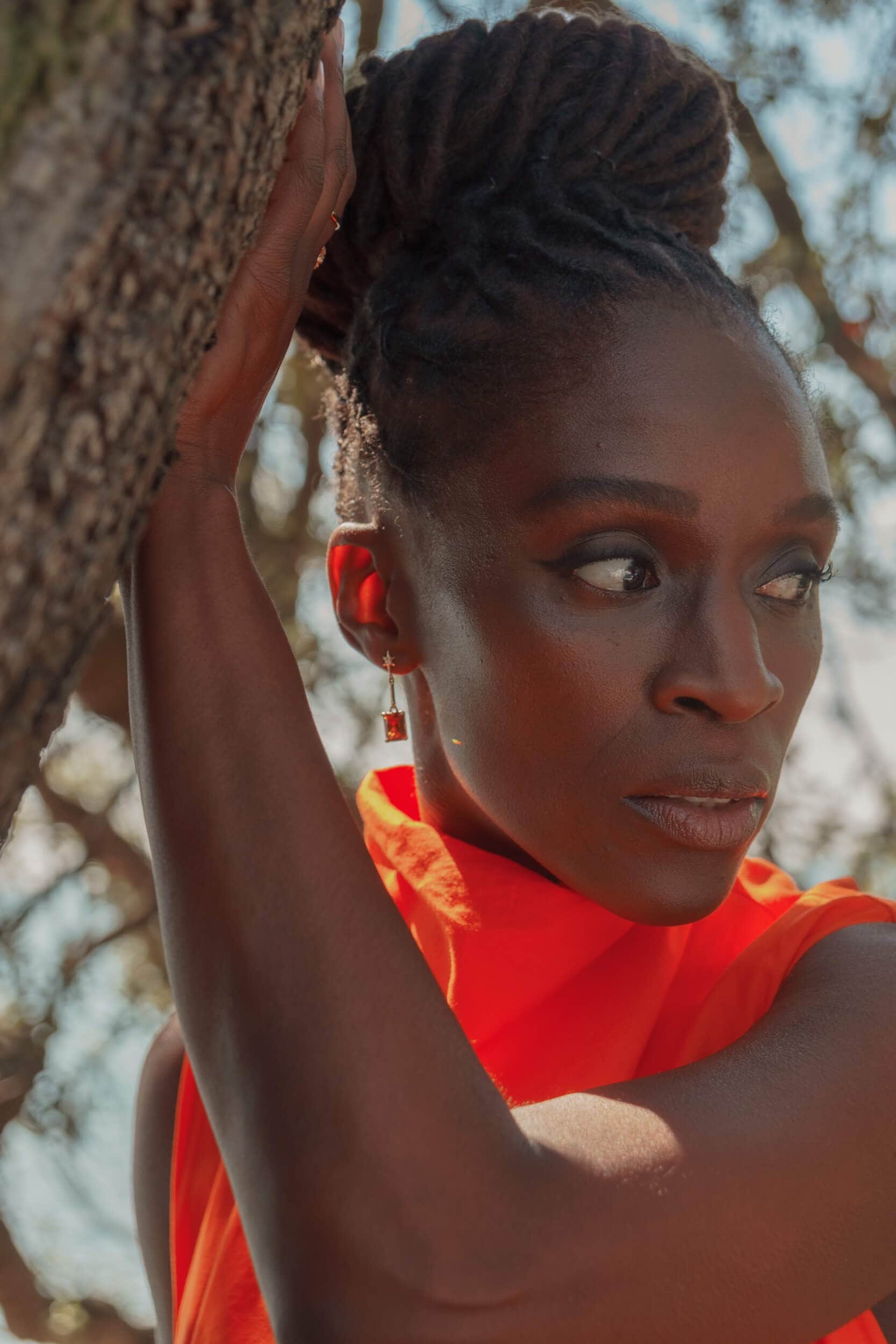
What does it mean to you to feel comfortable in your own skin?
To be comfortable in your own skin is to love yourself, to know yourself, to understand yourself, and also to give yourself a break [laughs], and know that things can change, and it’s okay to change, as well.
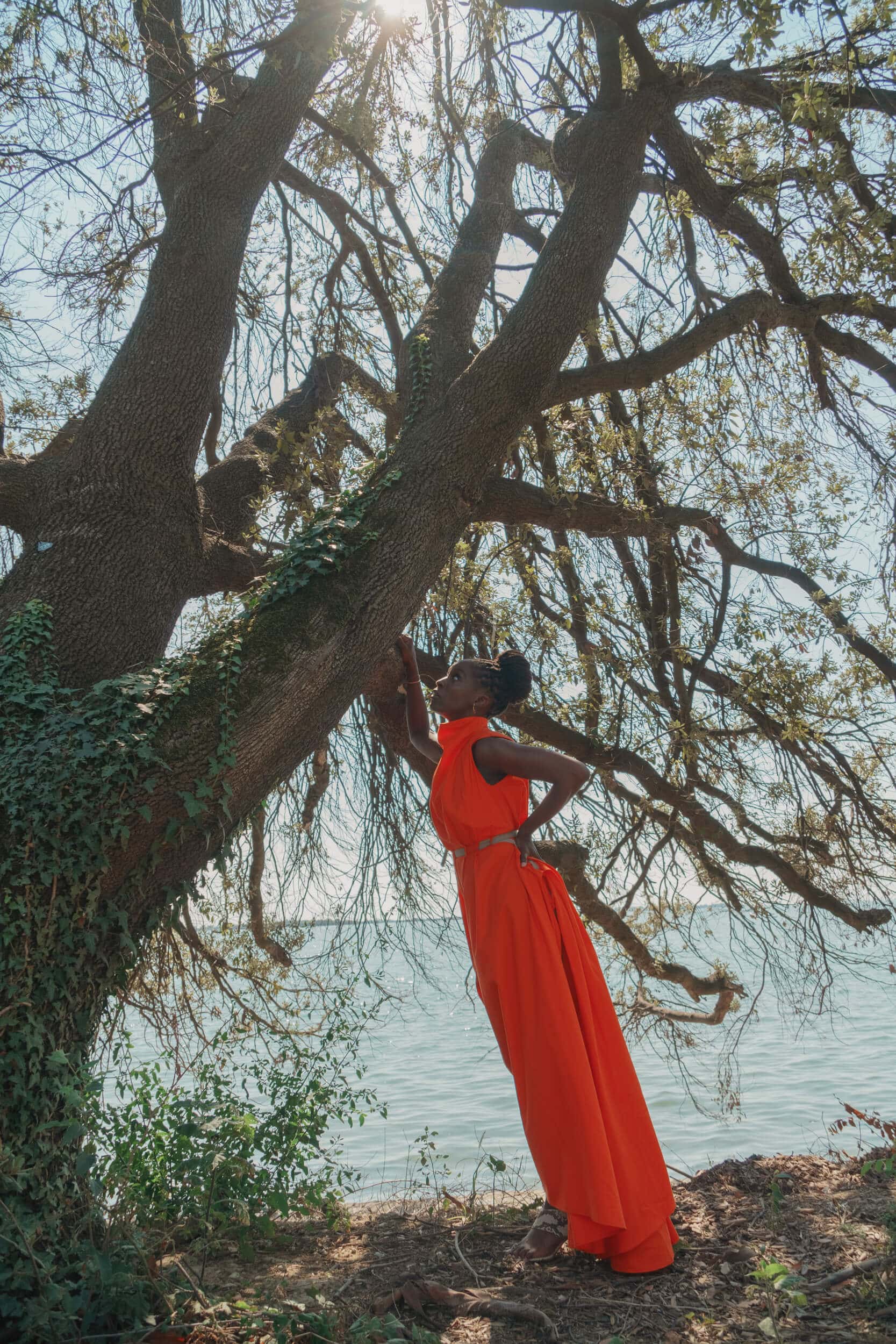
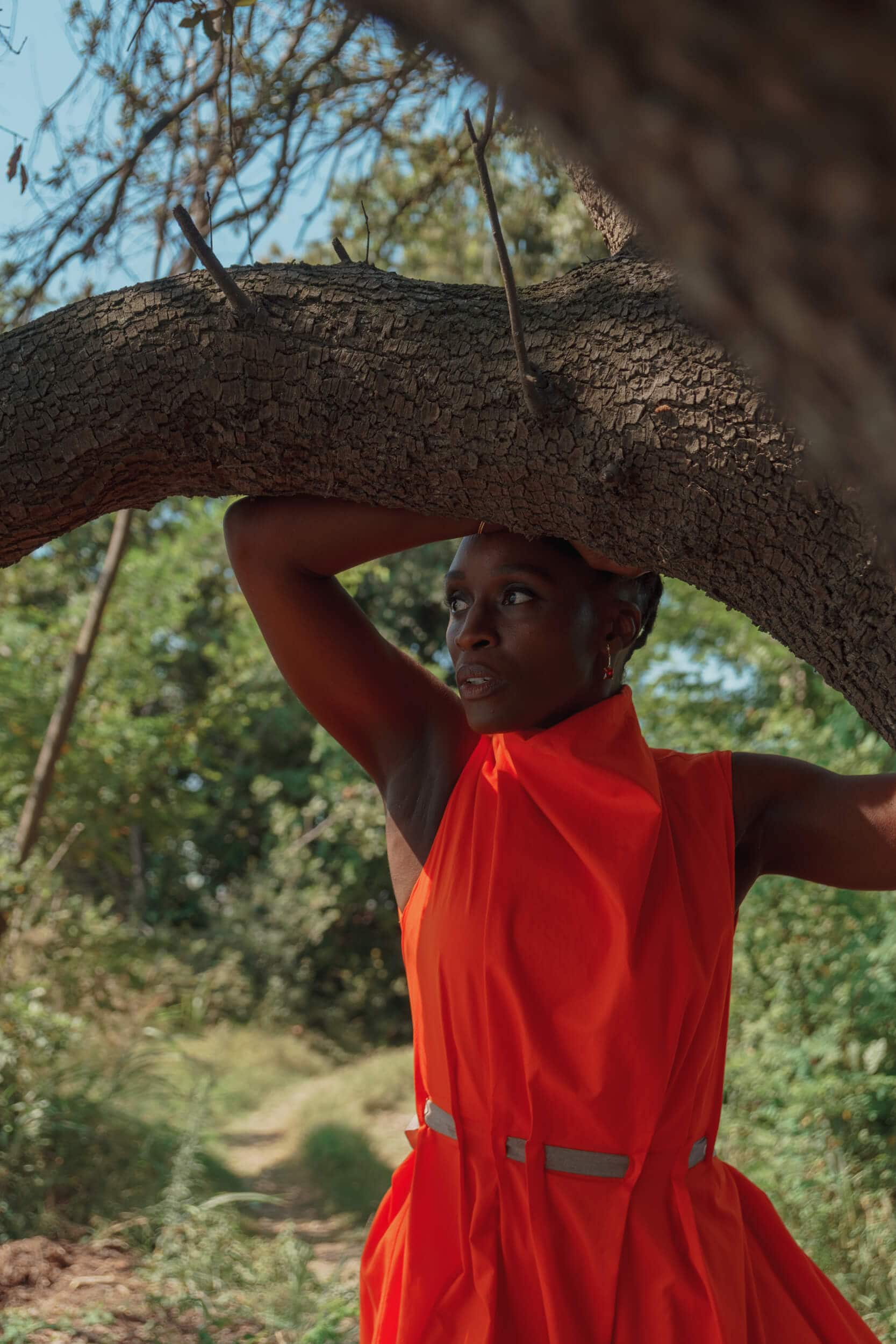
“Dune” is also about a new generation coming together to fight for a better world than the one that’s been left to them. I think that this is a perfect historical moment to show people, and young people, in particular, a story of this kind, tackling such sensitive, current themes. What do you hope the audience takes home with them after watching the movie?
I think I’d love for the audience, regardless of what age they are, to see how important a player they are on this planet, to maintain our planet, to respect it, and to practice environmentally-friendly lifestyles, and to understand that, by coming together, and embracing our social, economic differences, we all make the world turn around, there’s no individual society that can make that happen on their own, it’s impossible. I hope that people really consider that no matter how insignificant they think they are, they’re still very important in this future that we all have to make, even if we each make tiny changes, things will change so dramatically; hopefully, by seeing that, they will advance and further those changes to do something that’s constant and, hopefully, bring ourselves to a new way of living, as well as finding new resources too.
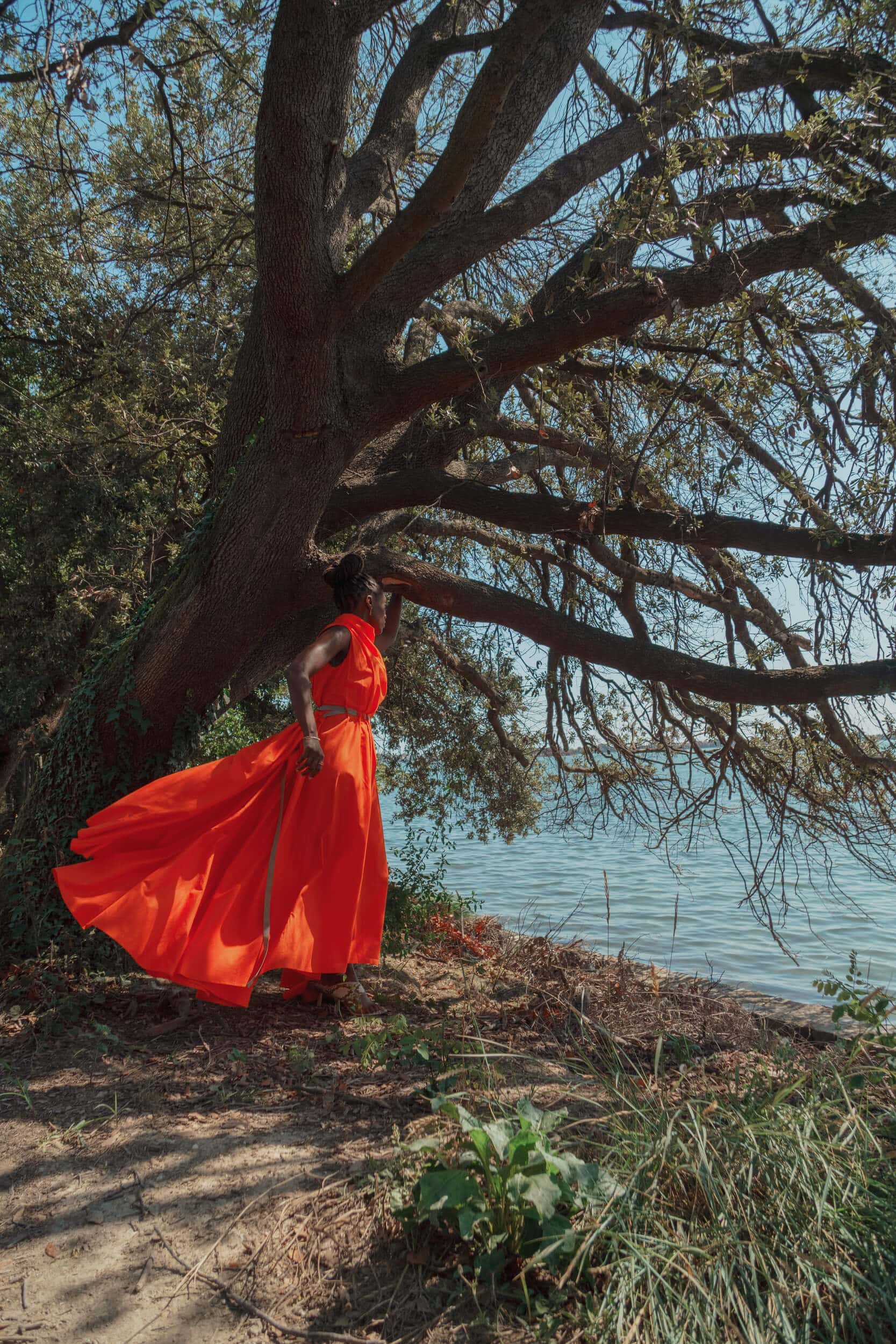
Photos & Video by Johnny Carrano.
Makeup by Lisa Houghton
Hair by Venner James
Styling by Zadrian Smith and Sarah Edmiston
Location: JW Marriott Venice Resort&Spa

